








“Stronger together” may have been the slogan for South Africa’s record-breaking rugby team in 2023, but it was also the clarion call to the University of Pretoria (UP).
Through carefully cultivated partnerships, we are focusing on building an institution that is firmly internationally recognised for research excellence and high-quality engaged scholarship, while contributing to social and economic development in South Africa, Africa and the world.
We have come a long way since 1908 when we started out as a tiny college of 32 students and four professors. Today we have grown into a community of around 56 000 students, of which 4 000 are international students from 36 countries.
We have grown not just in size but in stature as well, with an international reputation that is leading to strategic partnerships and collaborations that enhance research quality and drive transformative impact for sustainable futures.
Our inter-institutional and cross-continental alliances are set within the context of UP’s five-year strategic plan, Destination 2026 and Beyond, and is central to one of the University’s core strategies: strengthened research, international profile, and global engagement.
We arrived at our 115th year as the emerging gateway to Africa’s higher education. In 2023, we hosted the first University Partnership Initiative (UPI) Summit, which brought US and African universities together, as well as Africa Week, which saw universities from the US, Africa, Europe, Australia, and New Zealand discuss the power of collaborations and partnerships.
UP advanced further in making its presence felt as a global higher education institution with its entrance into the International Association of Universities (IAU). The IAU is
an UN-endorsed body that connects about 600 member institutions from more than 130 countries with the aim of enhancing the higher education community’s role and actions in advancing societies worldwide.
This accelerated growth in sustainable networks without borders will ensure that UP is well-positioned to adapt to the complex, interconnected crises, as captured in the UN Sustainable Development Goals and Africa’s Agenda 2063.
UP’s contribution to these networks is significant, with our global rankings continuing to improve year upon year. In the 2023 Times Higher Education (THE) Impact Rankings, UP rose to position 69 (up from the 101–200 band in 2022) out of 1 705 universities in 115 countries. This is a dramatic rise in rankings, given that UP only joined the rankings in 2021.
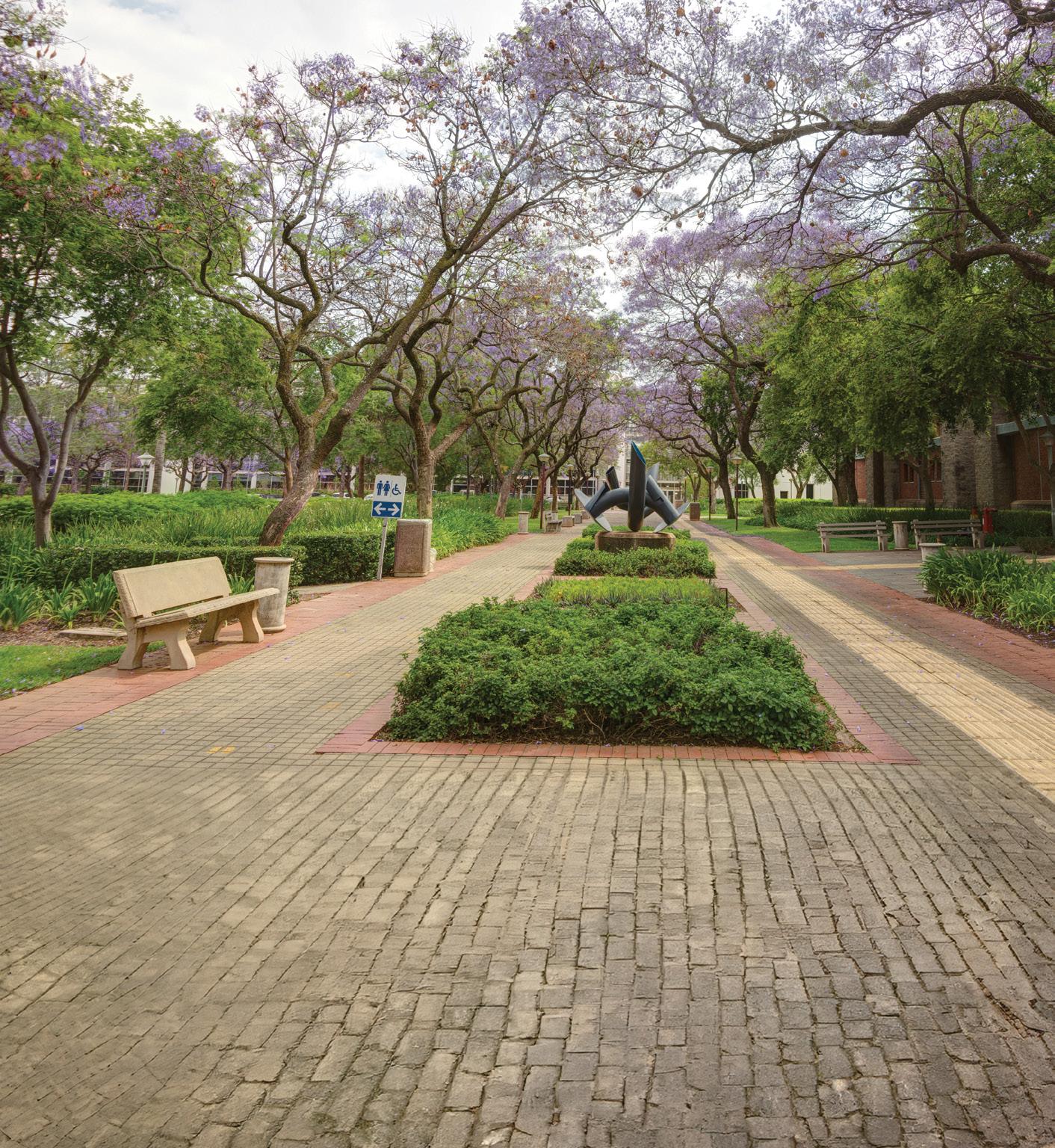
Justice Sisi Khampepe
Chancellor

UP is also ranked in the top 100 for SDG 17: “Partnerships for the goals”, testimony to our rise in networking, partnering, and collaborations.
This report is brimming with further examples of global recognition but the following two underscore welldeserved recognition for our research and innovation strength. UP was ranked as a highly innovative university in the 2023 World University Rankings for Innovation (WURI) and is the only South African university ranked in the 2023 WURI. The University also achieved a significant milestone by securing the 26th position in the world in the 2024 Quacquarelli Symonds World University Rankings for its international research network, which is in line with UP’s strategy of increasing the extent and diversity of its international research collaborations.
Much has been achieved, but there is no time to bask in the glory. The partnerships and networking we are recognised for ensure the University remains relevant, upto-date and agile in continuous learning while leveraging the possibilities, prospects and challenges of Society 5.0.
This agility will see the University working harder to sustain its networking by building ever-increasing strategic partnerships across the world. These partnerships will aid the University in improving the quality of its education across the board as well as the quality of its research.
This will enable it to deliver greater societal impact that changes the current trajectory of South Africa and Africa and makes a signal contribution to a better future for all.
As a venerable institution of 115 years, the University of Pretoria (UP) has been built on the shoulders of giants. In the recent past, we leveraged our reputation as a research-intensive university to build bridges into Africa and across continents.
Our rise in networking, partnering, and collaborations was internationally recognised when the University was ranked in the top 100 universities for SDG 17: “Partnerships for the goals” in the 2023 Times Higher Education (THE) Impact Rankings
Our position at number 69 out of 1 705 universities speaks volumes of our efforts to build sustainable networks that have an impact on global challenges. This affirms our leadership and commitment to build capacity in Africa and to accelerate and scale impact for achieving the African Union’s Agenda 2063, as well as the Sustainable Development Goals (SDGs) of the United Nations.
The UP Strategic Plan 2022–2026 and Beyond requires the University to continue reimagining the future to make UP a world-class institution. We need to constantly evolve and innovate to create a next-generation university.
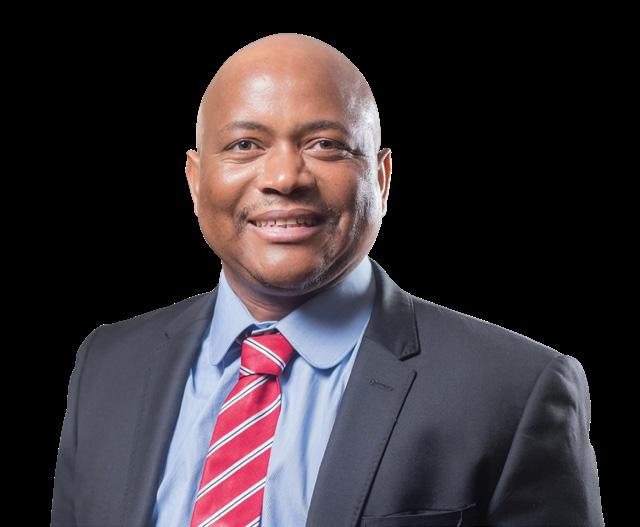
A significant part of this reimagined future requires the University to reconsider the use of current technologies and identify new technologies to entrench its position as a leader within the digital transformation space.
In this regard, we launched a strategy that articulates UP’s vision to fundamentally change how we operate and deliver value to our customers through the integration of technologies across the institution. Adopting the much-anticipated Digital Transformation Strategy at our institution is essential for us not only to remain competitive, but to stay relevant and be able to serve the requirements of students, academics, and staff in the fastpaced, technologically driven world of today.
The University’s agility in fast-forwarding the use of technology has enabled us to make important advances in teaching, learning, research and innovation, both
at home and on a continental and global scale. Using digitalisation as an essential resource, we have broadened our reach and built on each other’s areas of expertise with transdisciplinarity as the driver.
Technological advances require a consistent supply of energy, and preferably clean energy so that we reduce our carbon footprint. In 2023, the University established an energy advisory task team, which includes experts from the faculties of Engineering, Built Environment and Information Technology and of the Faculty of Economic and Management Sciences as well as alumni, and relevant stakeholders.
The advisory committee’s scope of work will not only include finding solutions for the immediate crisis we face as a university, but will also focus on finding medium- to long-term solutions to the energy crisis in the country.

However, UP is building not just a next-generation university. It is also ensuring that the next-generation workforce leaves well-equipped to become active contributors to the economy. The University was ranked No. 4 in the world for SDG8: "Decent work and economic growth" in the 2023 THE Impact Rankings This rates the University’s strategy to ensure youth employment and its efforts to develop programmes that equip students with the skills necessary for the evolving labour market. International recognition such as this underscores our commitment to creating education and training opportunities that support sustainable growth.
Being recognised in international rankings for our relevance and societal impact is part of the vision UP strives to achieve. We are already at the forefront of digital transformation among tertiary institutions and our
international rankings place the University as a leading institution in South Africa and among the top 100 globally. We are succeeding but will continue to do more.
This report shares some of the highlights of the tremendous success our institution has enjoyed in the past year. These achievements strengthen our position as a strong, innovative and socially responsive university and go a long way towards realising the University’s vision and strategic goals.
The Council extends its gratitude to the Interim ViceChancellor and Principal and his leadership team whose unwavering dedication to our core business has affirmed UP as the gateway to Africa and a leader in African research.
The University of Pretoria's (UP) goal of becoming a global African university is within reach, with 2023 proving to be a particularly auspicious year. An unprecedented number of inter-institutional agreements as well as advancements in international rankings are paving our future pathway as we head towards re-imagining and re-positioning UP as a leading research-intensive university in Africa.
Europe. It provides a groundbreaking platform designed to inspire closer collaboration across all continents. The network aims to make research outputs and educational material freely available, providing a global platform for collaboration and sharing of expertise.
As a venerable institution of 115 years, the University of Pretoria (UP) has been built on the shoulders of giants. In the recent past, we leveraged our reputation as a research-intensive university to build bridges into Africa and across continents.
Our rise in networking, partnering, and collaborations was internationally recognised when the University was ranked in the top 100 universities for SDG 17: “Partnerships for the goals” in the 2023 Times Higher Education (THE) Impact Rankings. Our position at number 69 out of 1 705 universities speaks volumes of our efforts to build sustainable networks that have an impact on global challenges. This affirms our leadership and commitment to build capacity in Africa and to accelerate and scale impact for achieving the African Union’s Agenda 2063, as well as the Sustainable Development Goals (SDGs) of the United Nations.
Vice-Chancellor and Principal
The UP Strategic Plan 2022–2026 and Beyond requires the University to continue reimagining the future to make UP a world-class institution. We need to constantly evolve and innovate to create a next-generation university.
Now in its fifth year, UP’s Africa Global University Project (AGUP) strategy is exceeding expectations in strengthening the University’s impact and international recognition. By forging relations on all continents with multiple stakeholders within and beyond universities, AGUP drives the co-production of knowledge to address complex local and global challenges.
This search for answers will be bolstered by the Knowledge Equity Network, launched during Africa Week at UP by partners in Africa, North America, and
To attain our vision as a leading research-intensive university in Africa, we are concentrating the University’s resources for maximum partnership impact and outcomes. This requires carefully selecting and sustaining partners based on their strengths, their alignment with UP’s strategy and envisaged joint activities. A particular focus will be the drive to make UP a globally recognised university for both research excellence and education.
Our intention is to develop the next generation of African researchers and innovation leaders with a global outlook by leveraging transdisciplinary research and attracting world-class researchers.
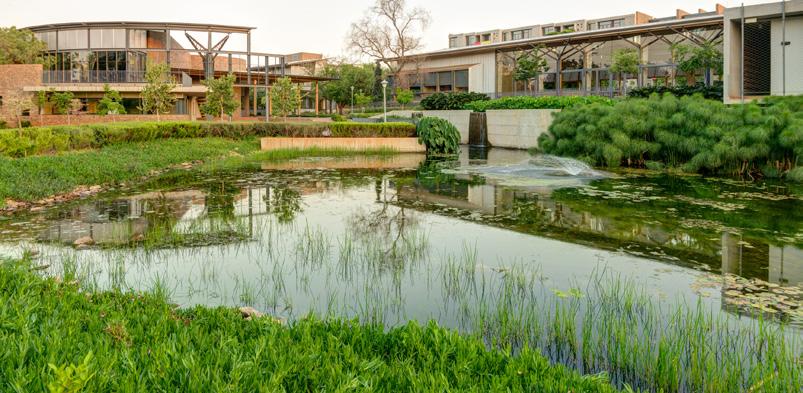
Rhodes University, in collaboration with UP, will host the Future Earth Africa Hub Leadership Centre from 2023 to 2026. This will be the first hub for the continent and one of a few in the world under Future Earth, a global initiative focused on advancing sustainability science. The hub was launched on 20 June 2023 by the National Research Foundation (NRF) at the first annual Sustainability Research Innovation Congress Africa satellite event at Nelson Mandela University. In its initial phase of three years, the Centre’s leadership will be housed in the Institute of Social and Economic Research (Rhodes), with other supporting staff based at the Future Africa campus (UP), pictured here.
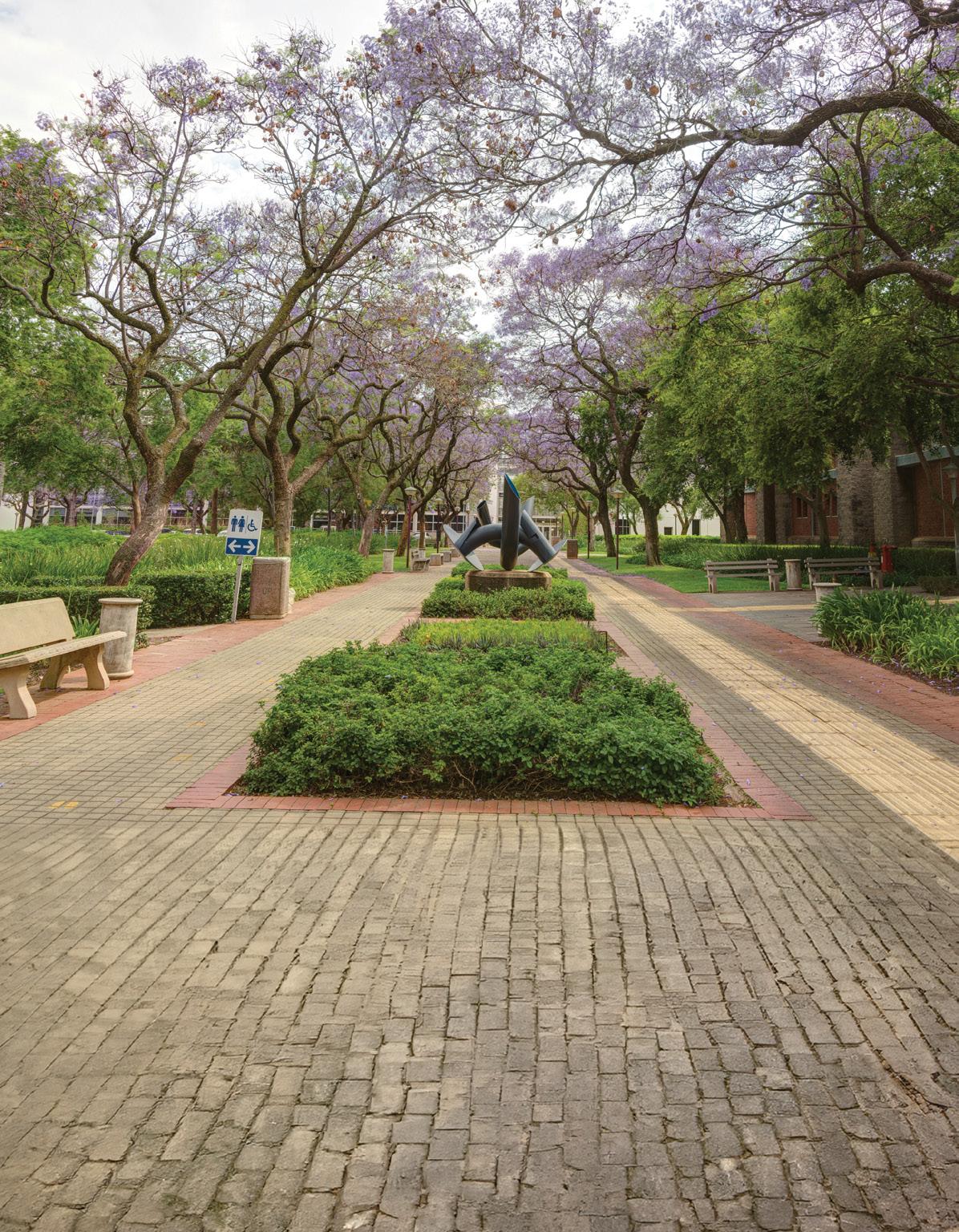
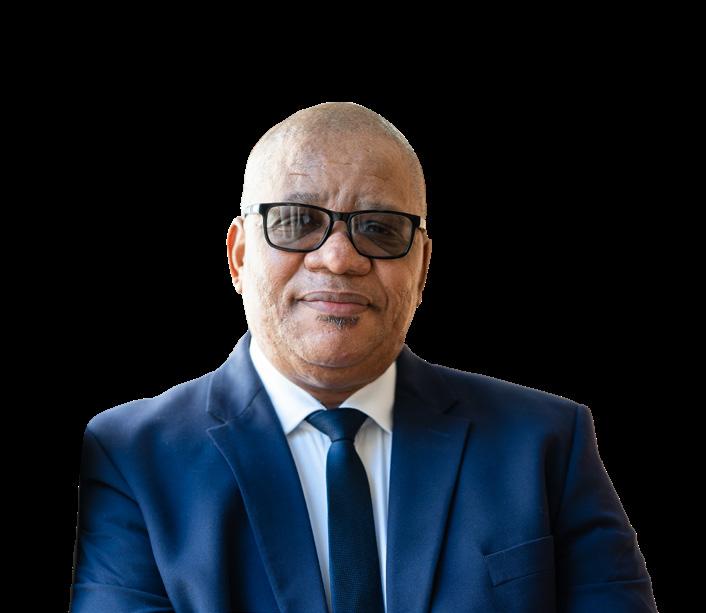
We are fully committed to supporting and assisting students and eliminating obstacles to success. Student success also includes job readiness, preparation for postgraduate studies, and post-graduation employment.
We continue to experience an increase in students wishing to study at UP, and successfully enrolling. The total head count in 2023 rose to 56 579, which is just over 2 000 more than for the 2022 academic year (54 466). This includes 36 889 undergraduates and 19 690 postgraduates.
During Welcome Day, UP welcomed 8 500 new students on campus, selected from well over 40 000 prospective students. Among them were over 1 400 students who achieved an average of more than 80% in the 2022
National Senior Certificate, including the top two Gauteng achievers, Emily Jane Hawkes and Christelle Jones.
Recipients of UP’s Vice-Chancellor’s Distinguished Merit Awards (VCDMA) were honoured at the Welcome and Leadership Conference. This annual three-day event celebrates the top Grade 12 academic achievers who choose to further their studies at UP. The award provides funding for the duration of their undergraduate studies. The conference started in 2016 with only 13 students. Since then, 400 students have received the distinguished award.
Another successful in-person event was the annual #ChooseUP Day, held across UP’s seven campuses, to provide prospective students and parents/guardians with a glimpse of the staff, campuses, student services, and facilities
in preparation for the 2024 academic year. The thousands of visiting prospective students reaffirmed the University’s status as a top choice for many in South Africa and beyond.
Six conditionally accepted students won Vice-Chancellor’s #ChooseUP Day bursaries worth R20 000 each for the 2024 academic year.
We also hosted the first Postgraduate Virtual Information Session to showcase our world-class facilities, research, and expertise. The session was a wonderful opportunity for prospective postgraduate students to gain valuable insight into furthering their studies at UP. The top ten countries that viewed the session were South Africa, followed by India, Botswana, Tanzania, Eswatini, Nigeria, Lesotho, the USA, Zimbabwe, and Ghana. Prospective students utilised a live-chat option, where they engaged with faculties about programmes on offer and postgraduate support services.
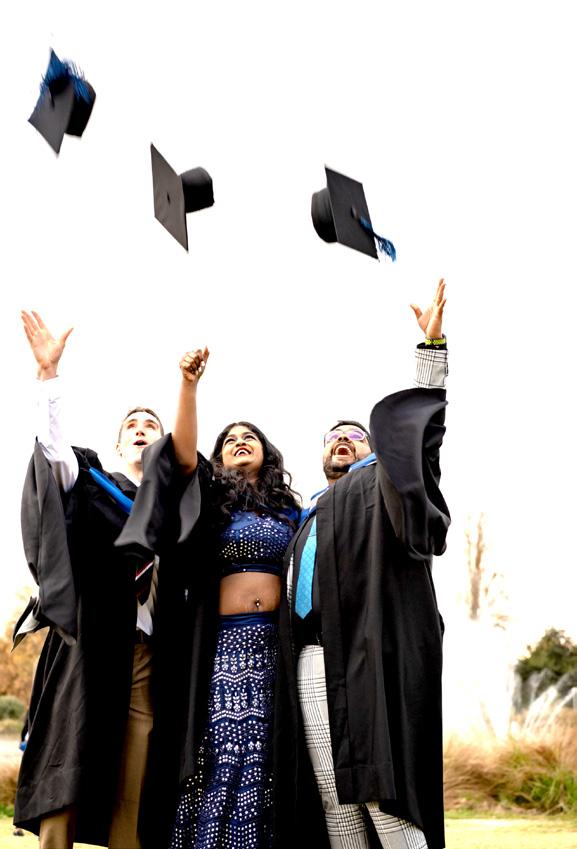
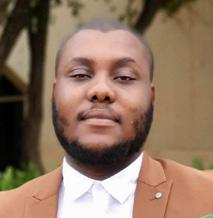
Special mention must go to UP biochemistry master’s graduate Vusi Chiloane. He pulled off a rare academic hat trick when he completed his third UP degree in a row cum laude. What makes his feat even more impressive is that, while studying, he was also managing a hereditary condition that was causing his eyesight to deteriorate. He had previously received his BSc and honours degree in the same discipline from UP. To top it all, Chiloane also received the Labotec Prize, which is awarded to the student who obtains the highest mark for their MSc dissertation in biochemistry.
The quality and excellence of our students and graduates depends, to a large extent, on the knowledge and skills, talent and commitment of our academic, professional and support staff. Attracting, developing and retaining quality staff is therefore at the core of UP’s strategic priorities.
Just one of the indicators of our quality staff is UP’s ranking among the world’s top universities to study 21 subjects in the 2023 QS World Rankings by Subject. This is an increase from 20 subjects in 2022 and 18 in 2021. Of the 21 disciplines in which UP was ranked this year, eight are rated first in South Africa, up from five top-rated disciplines in 2022.
It is worth singling out the UP Faculty of Law which once again achieved the highest ranking in Africa and secured a remarkable 65th position globally in the 2024 THE Subject Rankings.
Certainly none of our achievements would be possible without a competent academic corps. UP retains its top position for having the highest proportion of academic staff who hold doctorates (72.6%), across all South African universities. The national average is around 43%.
Master’s and doctoral enrolments continued to grow, as well as the number of international postdoctoral fellows and international academic staff.
While the number of NRF-rated researchers dropped due to retirements, death and resignations, the University still leads nationally against all universities and research institutions in its number of NRF-rated researchers (593).
The visibility of our lead researchers is demonstrated in the Essential Science Indicators (ESI) database, where UP was rated among the top 1% globally in 14 of the 22 fields, up from 13 in 2022 and 12 in 2021.
Postgraduate education contributes to high-level skills development and specialised knowledge nationally, and replenishes the human capital required by the country.
Our graduation rates demonstrate our capability to deliver the human capital needed to develop South Africa, our African continent and, indeed, the world. In 2023, we increased the number of graduates across all levels.
A total of 14 323 diplomas and degrees were awarded in 2023, which was an increase of 769 graduates compared to 2022 (13 554). Master’s graduates numbered 1 956 (compared to 1 821 in 2022), and there were 424 doctoral graduates (compared to 333 in 2022). Distance and online education graduates increased to 1 053 in 2023 (993 in 2022). There was an increase of 97 graduates in undergraduate contact programmes, from 7 573 in 2022 to 7 670 in 2023, while the total number of graduates in postgraduate programmes increased by 635 – from 5 879 in 2022 to 6 514 in 2023 – for all teaching modes.


Professors Mike Wingfield (far left) and Rangan Gupta (left) have once again been placed on Clarivate’s Highly Cited Researchers list for 2023. They are among a group of only 10 South African academics on the list.
Prof Gupta was also named the best scientist in the field of economics and finance in South Africa in the latest World Online Ranking of Best Economics & Finance Scientists report, released on 1 March 2023.
Corporates and businesses continued to show their confidence in UP, providing just over 83% of the total philanthropic income generated by the University.
The Mastercard Foundation remains one of the University’s largest donors, with close on R50 million being donated towards scholarships in 2023. The Wellspring
Philanthropic Fund donated just short of R15 million to the Centre for Human Rights.
UP was the first university in South Africa to partner with the prestigious Mastercard Foundation Scholarship Program in 2013 and we were honoured in 2023 to celebrate ten years of facilitating deserving scholars
to pursue their aspirations. In December 2023, the Foundation renewed its commitment with a contribution of R178.6 million towards Phase 2 of the programme.
The Mastercard Foundation Scholars Program was initiated on the premise that all young people, regardless of circumstances, should have the opportunity to obtain a quality education. To become a Mastercard Foundation Scholar, one must have strong academic credentials, display high-level leadership qualities, and demonstrate a zeal for transforming the lives of everyone around you. In 2023, we welcomed 65 scholars from 18 African countries, and each possess these characteristics.
With the Mastercard Foundation’s significant contribution to Phase 2, the University’s fundraising team managed to exceed its stretch target of R300 million, raising a total of R440 million by December 2023.
UP students were also beneficiaries of the Motsepe Foundation, which donated R30 million to 26 universities towards student registration, fees and historical debt. Through its donation, the Motsepe Foundation hopes to encourage support from private and non-profit stakeholders who stand to benefit from an educated and skilled youth population.
The University’s Charitable Trust in the UK was approved and a bank account opened. The University now has two foreign charitable foundations, with the second one being in the USA. A further charitable foundation will be launched in Australasia in the near future.
The UP Giving Matters campaign raised around R36 million for various projects, including bursaries. This exceeded the 2022 campaign, which raised R25.6 million of new money. The campaign focused on raising funds towards the VC’s Scholarship Fund for undergraduate and graduate students.
In 2023, the UP Alumni Online Mall was launched as the first shopping hub of its kind in South Africa. It aims to complement the initiatives UP has in place to restore the future of students who would otherwise drop out of university and see their chances of finding employment and reaching their goals through education decrease. The proceeds from the subscription fees go towards the UP Alma Mater Fund, which helps needy students finance their studies.
The Online Mall allows the University’s more than 320 000 alumni around the world to shop at discounted rates from over 400 leading brands across South Africa and globally.


This report will further demonstrate how we have strengthened the University’s research, international profile, and global engagement during 2023.
I would like to pay special tribute to our scientists who yet again forefronted the University as a major researchintensive university in Africa by leading collaborative teams that produced groundbreaking research. These include unravelling the precise genetic make-up of the country’s national flower, the king protea (Protea cynaroides), unpacking the secrets of ageing in mammals, and improving the design and functionality of cochlear implants.
At UP, we believe that our research and collaborative efforts with partners are key to transforming lives and society by providing African solutions to global concerns. This is a value espoused in our motto – “make today matter” – because we believe that in every moment lies the potential to have a positive impact on the future and in so doing, change the world for the better.
Much appreciation goes to the Chairperson of Council, Mr Kuseni Dlamini, and every Council member for their support throughout a year which saw us exceed many of our targets – even our stretch targets – and build a worldclass African university on so many levels. We are indeed stronger, together.
Prof Flavia Senkubuge
Acting Vice-Principal, Student Life
Prof Barend Erasmus
Dean of the Faculty of Natural and Agricultural Sciences (re-appointment)
Prof Rantoa Letsosa
Dean of the Faculty of Theology and Religion
Prof Wynand Steyn
Dean of the Faculty of Engineering, Built Environment and Information Technology (EBIT)
Prof Alta van der Merwe
Deputy Dean, Teaching and Learning, for EBIT (re-appointment)
Prof James Maina
Deputy Dean, Research and Postgraduate Studies, for EBIT
Prof Marinda Oosthuizen
Deputy Dean, Research and Postgraduate Studies in the Faculty of Veterinary Science (re-appointment)
Prof Rhoda Leask
Deputy Dean, Teaching and Learning in the Faculty of Veterinary Science
#4 in the world
Ranking
#23 in the world
Ranking
#26 in the world
Ranking
#32 in the world
Ranking
Source:
#65

As a leader within the digital transformation space, the University of Pretoria (UP) has developed a “digital drive” strategy known as the UP Teaching and Learning Plan. This not only enables a smooth transition to remote teaching in the event of disrupted teaching and learning but prepares students for a workforce increasingly dependent on AI technologies.
The University’s hybrid teaching and learning model encourages students to prepare independently for each class and engage and critically discuss issues in class. This teaching and learning model is inclusive, as it seeks to address the needs of all students.
It is a model that gives students the best of both worlds – online and contact – and will allow them to succeed at university and in life beyond university. In addition, this model will prepare a new generation of students to flourish in the world of work because it encourages students to take control of their learning, apply their skills, solve complex problems and, in the process, develop digital fluency.
Through Blackboard Learn™ (branded as clickUP), students come to class prepared, complete pre-class assessments, engage in class, and consolidate their knowledge after class. Learning analytics’ early alerts help lecturers intervene in a timely manner and prevent possible future problems.
In 2023, we implemented the first phase of clickUP Ultra for an enhanced educational experience. The new clickUP Ultra aligns with contemporary universal design principles, and facilitates data-driven learning analytics to keep students engaged and on track for success.
Students can also track their progress through an automated process, or be notified, for example, if their activity or grade decreases compared to that of their peers. This encourages self-reflection and students assuming agency for learning – a central message in the FLY@UP campaign, which uses various tools and tactics to help students graduate in minimum time.
We know that preparing our students for automation, digital platforms and other innovations is the cornerstone of education for a future that is already on our doorstep. Through our Digital Transformation Strategy and the Spatial Development Plan: 2030, we are working hard to ensure our students have an enabling learning environment.

and the technology for students to reach their potential. The library also aligns with international library trends of promoting collaborative student learning through innovation and technology.
On a practical level, the University launched its first fully online undergraduate programme, the Higher Certificate in Sports Sciences, through UP Online as part of its Comprehensive Online Education Services (COES). This initiative enhances accessibility to UP’s prestigious programmes for students seeking flexible learning options.
In 2023, we implemented Anthology REACH as a Student Relationship Management system to support student success and retention. This enables the Faculty Student Advisors (FSAs) to manage the student success processes and improve communication, planning, and tracking tools from one central hub. We are also creating a more inclusive and supportive environment and broadening students’ access to learning material by using Blackboard Ally to enhance digital content.

The first research chair in the Biodiscovery Centre, launched in 2023, will help us make immense strides towards this goal. An agreement between the Faculty of Natural and Agricultural Sciences, M2Bio Sciences (a private company) and Enterprises University of Pretoria, saw the first research chair in the Biodiscovery Centre being established. The Centre, led by Professor Vinesh Maharaj, conducts research focused on science and evidence-backed premium health and wellness products. An integral part of the research is to use AI for the discovery of natural product-led compounds that can be developed as pharmaceutical and food ingredients.
In a first for Africa, UP’s Faculty of Health Sciences has launched an interactive 21st-century hi-tech library (pictured on this page), seeking to bridge the gap between learning and innovation, and providing virtual spaces
Student success initiatives, such as the digital student success infrastructure and FSAs, are generally accessible to all students. However, certain initiatives target specific students or modules based on risk factors, including financial, academic, disability, or psychosocial aspects. Transitioning from high school to university can be particularly challenging for first-generation students and those from underprivileged communities.
The University strives to facilitate a seamless transition for these students. Therefore, the UP Readiness Survey results identify first-generation students for targeted interventions, such as the STARS Peer Mentorship Programme.
We believe our multi-layered support systems play a significant role in student success. In 2023, the overall module pass rate for UP increased to 88.10%, while the examination pass rate stands at 86.90%.
• The Academic Orientation Programme provides comprehensive support to encourage the academic development and success of firstyear students.
• Faculty Student Advisors (FSAs) provide a safety net service, advising and referring students for the support or intervention they may require.
• Online learning platforms ensure that students can attend a tutorial from wherever they may be, or log in to work through the recorded tutorial.
• The High Impact Modules project improves the module success rate of modules that indicate a pass rate of below 75%, by providing targeted interventions.
• Peer Advisors work closely with FSAs to answer questions around administrative processes such as degree planning and registration of modules.
These new developments, and the University’s ongoing efforts to make our students fit for the new way of working, have earned us international recognition. UP was ranked number one in South Africa in the Times Higher Education (THE) World Reputation Ranking for Employer Reputation (and 155th in the world). This confirms that we produce graduates who understand the world of work and can make a valuable contribution immediately.
We are proud to be building Africa’s future workforce through a range of tools and skills.
The Ready for Work courses help our students prepare for the workplace and what to expect from a corporate work environment. These free courses are available online on clickUP (the University’s Learning Management system).
UP students also have access to the Entrepreneurship programme, another free online course that teaches them how to use their knowledge, skills and talents to start their own businesses, enabling them to become job creators rather than job seekers.
Our programmes and services shone in the 2023 South African Graduates Employers Association (SAGEA) awards.
The UP-Career Services Mentorship Programme, available to all final-year students to hone their skills, was named the Best Mentorship Programme. The Career Service office also won the SAGEA Best Career Services Award. The programme recognises the importance of students receiving the guidance of industry specialists to prepare them for the world of work. It aims to link students with industry experts for six months.
Our students also benefit from our partnerships with industry. One such example is the BMW IT Hub’s collaboration with the Department of Informatics in the Faculty of Engineering, the Built Environment and Information Technology (EBIT) at UP. The partnership aims to develop an information and communications technology skills talent pool of local students.
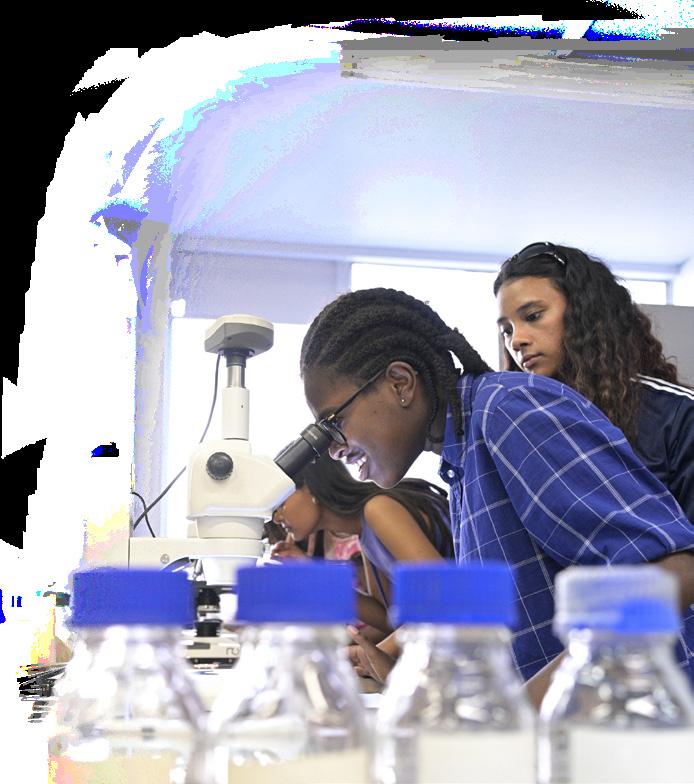
The UP Giving Matters campaign is designed to raise philanthropic awareness and instil a culture of giving in the University’s communities. Its aim is to raise R100 million by 2024, to supplement UP’s day-to-day fundraising projects, which offer financial assistance to ‘missing middle’ students. By the end of 2023, the UP Giving Matters campaign raised around R36 million for various projects, including bursaries. This was a significant improvement on the 2022 campaign, which raised R25.6 million of new money.
We not only produce graduates who are socially conscious and active citizens; they also leave their academic mark on local and international platforms. Just four of their accomplishments are listed here.
Impact of AI: The University’s computer science students featured strongly at the first Africa-hosted machine learning conference. Professor Vukosi Marivate of UP’s Department of Computer Science and UP master’s students participated in the 2023 International Conference on Learning Representations (ICLR) in Kigali, Rwanda. This was the first time that the ICLR, aimed at bringing Africa a few steps closer to the global discourse on the impact of artificial intelligence, was hosted in Africa.
100% pass rate: UP students achieved a 100% pass rate in the 2023 South African Institute of Chartered Accountants (SAICA) Initial Test of Competence (ITC). SAICA administers two professional exams, the ITC being the first of the two. The results of the January 2023 ITC examination were released on 31 March 2023, and three UP students featured in the top ten.
Law moot team represents SA: The Faculty of Law’s moot team won the national rounds of the Philip C Jessup International Law Moot Court Competition, the biggest and most prestigious competition of its kind in the world. The team – consisting of Mamkhabela Mthembu, Liyah Singh, Jade Werner, Comfort Ayelomi, and Nyasha Jawa – represented UP and South Africa at the finals in Washington, DC.
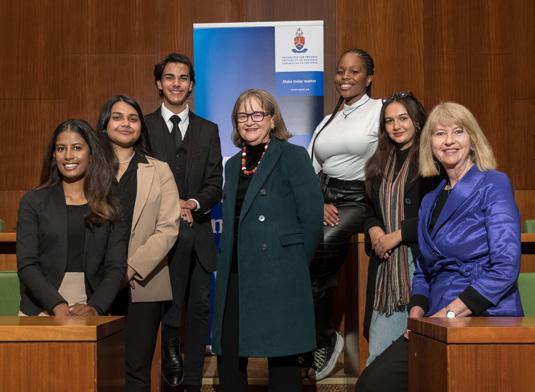
UP Law students also won the International Children’s Rights Moot Competition 2023, hosted by Leiden University in the Netherlands and law firm, Baker McKenzie. The finals featured 140 students from 19 countries. Pictured are UP law students Vedanta Ramasary, Muskaan Singh, Chaun du Plessis, Faculty of Law Dean, Prof Elsabe Schoeman, Yonela Vayo, Gracie Sargood and Prof Ann Skelton, who is UNESCO Chair of Education Law in Africa at UP and Chairperson of the United Nations Committee on the Rights of the Child.

First Year Experience Programme: Assists first-year students to deal with challenges and issues they face during their first academic year.
Disability Unit: Helps with the added challenges experienced by people with disabilities as they adapt to the new university environment.
Student Counselling Unit: Provides readily accessible counselling services through virtual or face-to-face consultations.
Student Health Services: Provide comprehensive primary healthcare and health promotion programmes to all registered students.
A vibrant student experience encompasses more than successful grades and social connection.
In 2023, the Student Counselling Unit (SCU) built on the philosophy that student wellness and emotional resilience contribute to student success. The Unit has increased its proactive and preventative offerings to develop health and wellness information and literacy among the University’s students.
The SCU also introduced a new service: quick mental health consultations for students who would rather come in to talk with one of the counsellors. Two mental health student societies were formally registered in 2023, namely Mind Matters and GenZen.
As exams are a trigger for emotional distress, we rolled out the OWN YOUR EXAMS campaign, aimed at creating awareness around exam and test writing rules. The campaign is ongoing throughout the year, with more emphasis before and during exam time. This support campaign supplements the many formal campaigns we have in place to help our students succeed at their studies.

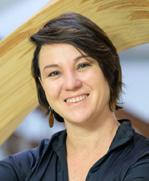
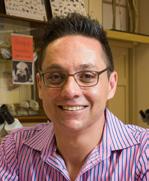
UP has named two of their top teachers by awarding them Individual Teaching Excellence Awards: Dr CA Davey (far left) from the Department of Architecture and Dr CJ Oosthuizen (left) from the Department of Zoology and Entomology.
Shaping and producing the next workforce and leaders of our country is a responsibility that our staff take to heart and they have continued to grow in their roles. The quality of our teaching is reflected in admirable subject rankings for 2023.
UP retains its top position for having the highest proportion of academic staff who hold doctorates (72.6%), across all South African universities. The national average is approximately 43%. We also have the highest number of NRF-rated researchers (593) of all universities and research institutions.
It is largely due to this qualified corps of teachers that UP ranks among the world’s top universities to study 21 subjects according to the 2023 QS World Rankings by Subject, and that we are rated the best place in South Africa to study for eight of them.
These QS World Rankings also rated two of our subjects among the Top 60 in the world: Mineral and Mining Engineering (35th position) and Veterinary Science (in the 51–60 global band).
The UP Faculty of Law once again achieved the highest ranking in Africa and secured a remarkable 65th position globally in the 2024 THE Subject Rankings
In South Africa, UP is ranked number one in the following subject areas: Law, Veterinary Science, Accounting and Finance, Agriculture and Forestry, and Electrical and Electronic Engineering. The University is number two in Sport Science, Mathematics, Statistics, Archaeology, Architecture, and Mechanical and Aerospace Engineering.
• Faculty of Economic and Management Sciences (EMS)
First faculty of its kind in South Africa and Africa to be accredited by the Association to Advance Collegiate Schools of Business.
• Gordon Institute of Business Science (GIBS)
Ranked by the UK’s Financial Times as one of the leading business schools in the world (#32).

In the spirit of Africa: The much-anticipated annual Principal’s Concert, with the theme African Spirit showcased South Africa’s musical diversity. Guests enjoyed an offering of a musical journey through Sophiatown Jazz before moving on to various other local music genres, with performances in isiXhosa, isiZulu, English, and Afrikaans by the UP Sophiatown Jazz Ensemble, UP Symphony Orchestra, UP Ovuwa Cultural Ensemble, Onderstepoort Community Choir, UP Chorale, and UP Camerata.
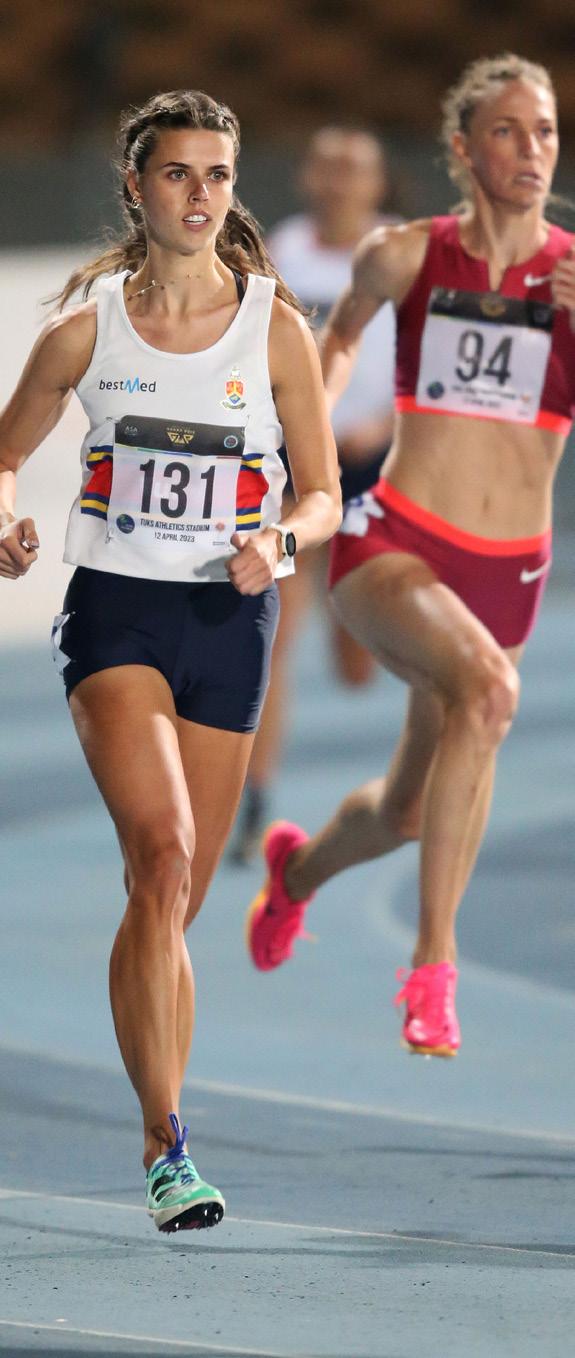
During the annual TuksSport Colours and Awards ceremony, we honoured our 57 student-athletes, team managers, and coaches who represented Team SA at the World University Games in Chengdu, China, in July 2023. These athletes comprised around 30% of Team SA, and 11 of the 17 individual medals brought home by the national team came from UP-Tuks student-athletes.
Three student-athletes who represented their national teams (Full Proteas) while completing their master’s degrees were awarded the Vice-Chancellor and Principal’s Award for Academics and Sports Excellence.

The overall TuksSport BestMed Sports Woman and Man of the Year awards went to UPTuks alumni and current international sporting medal winners Tatjana Smith (née Schoenmaker) (TuksSwimming) and Christian de Klerk (TuksArchery). De Klerk is the first South African archer to win an individual medal at the World University Games in Chengdu, China.

TuksSport athletes raised the UP banner in victory at so many sporting events during the year, proving that UP is indeed a powerhouse of sporting talent. A select few international achievements are:
Tatjana Smith (née Schoenmaker) won gold in the 200 m breaststroke at the World Aquatics Championships held in Fukuoka, Japan. The UP swimmer also won silver in the 100 m breaststroke.
Marione Fourie (left) set a new South African record in the Swiss U23 Championships when she won the 100 m hurdles, making her one of the world’s 16 fastest 100 m hurdlers.

UP is among the world’s top universities to study 21 subjects according to the 2023 QS World Rankings by Subject.
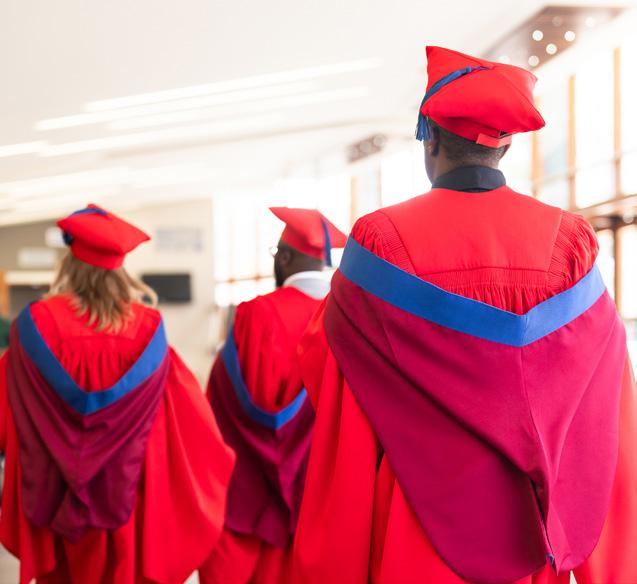
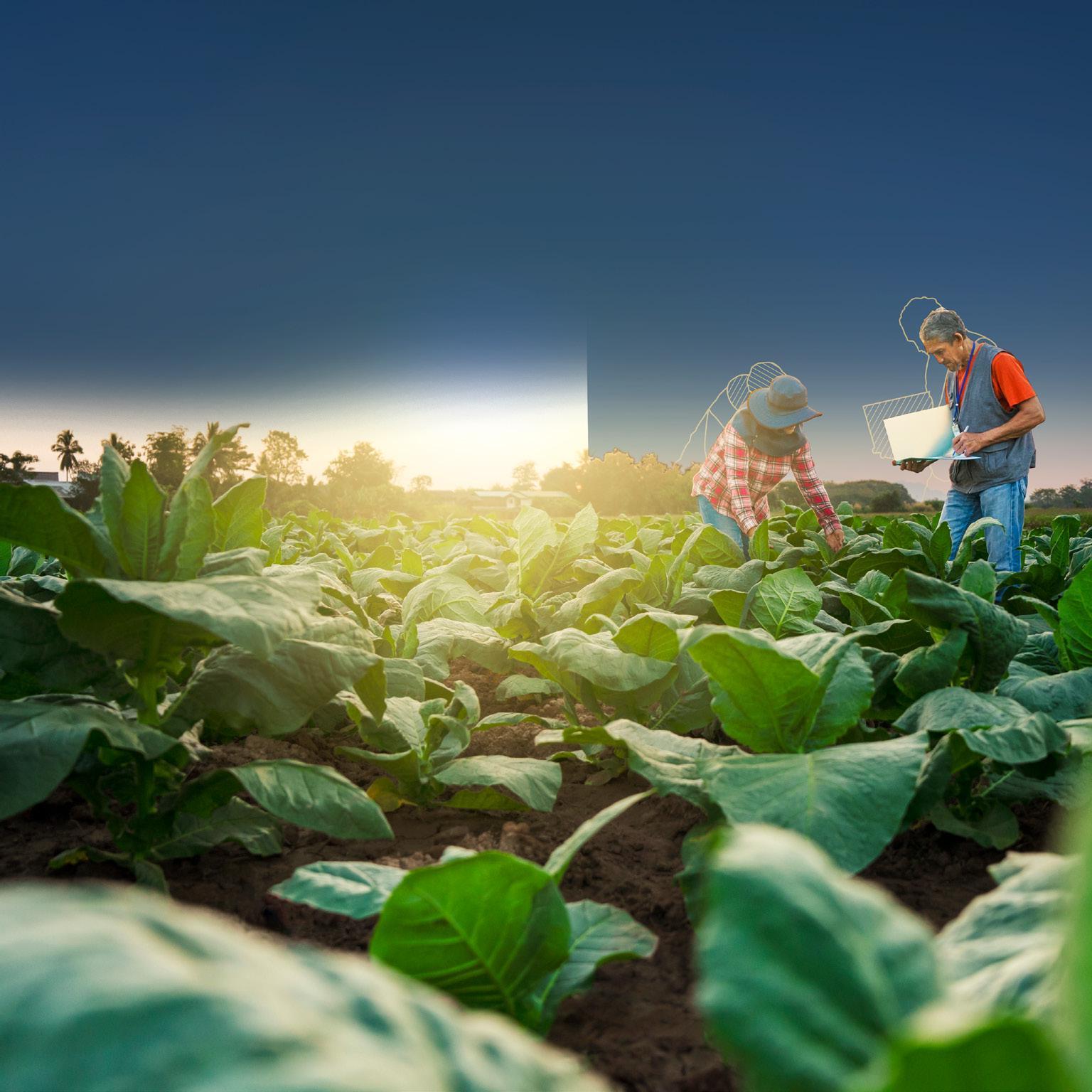
As a leading African global university, we are widely recognised for the solutions we provide through our research outputs. In 2023, UP achieved a significant milestone by securing the 26th position in the world for its international research network, according to the 2024 Quacquarelli Symonds (QS) World University Rankings This acknowledges our collaborative efforts with other leading global institutions and researchers and is in line with UP’s strategy of increasing the extent and diversity of its international research collaborations.
Besides being one of South Africa’s premier universities, and the largest traditional contact university, we are also one of the largest producers of research in the country.
The Nuclear Medicine Research Infrastructure facility at the Steve Biko Academic Hospital will provide cutting-edge diagnostics and treatment in relation to cancer, tuberculosis and other major diseases that are burdening public health.
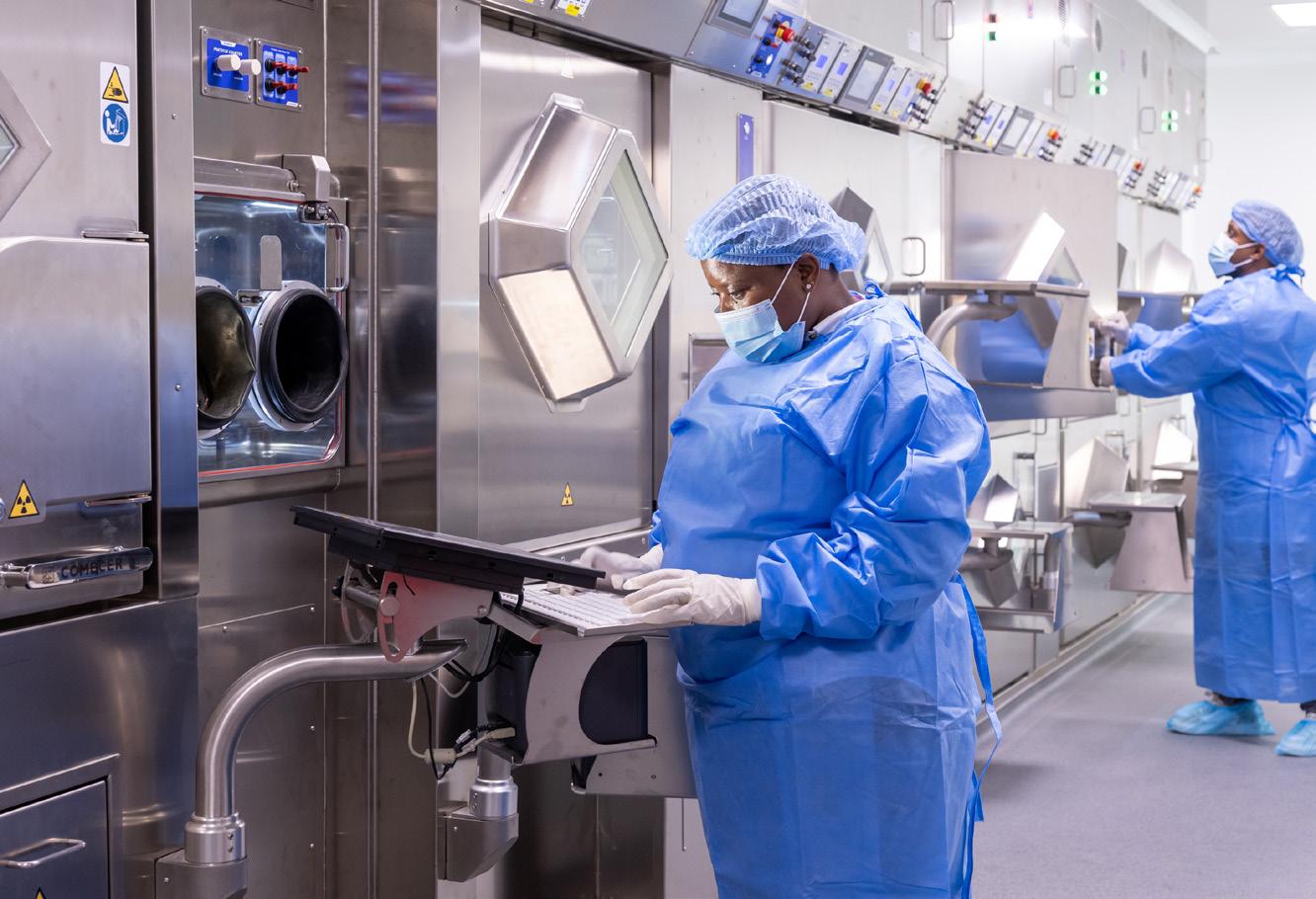
A commitment to connecting science with society and applying our research for the betterment of all has long been at the heart of what we do.
The 2023 academic year saw the University expand its research entities and research leadership substantially. The Faculty of Health Sciences inaugurated three centres focusing on tobacco-related issues, emerging viruses and brain tumours, as well as an institute focusing on nuclear medicine.
In the broad field of sustainability, the Faculty of Education established the Centre for the Advancement
of Sustainable Higher Education Futures, while the Faculty of Law was proud to inaugurate the Centre for Environmental Justice in Africa, and the Faculty of Veterinary Science established the African Centre for Biosecurity and Disease Risk Assessment.
In keeping with a long tradition of international collaborations for research and teaching, the Faculty of Humanities established the Maarif Centre for Turkish Studies in Africa.
The total number of research entities – which include Centres of Excellence, Institutes and Research Chairs –increased from 115 in 2022 to 123 in 2023.
An excellent example of the University marrying its priorities of local relevance and international cooperation was realised when its researchers were at the forefront of a very special first for South African plant sciences when they unravelled the precise genetic make-up of the country’s national flower, the king protea (Protea cynaroides). It is the first plant that is unique to South Africa to have its entire genome sequenced in-depth.
Researchers from the Forestry and Agricultural Biotechnology Institute, the Department of Biochemistry, Genetics and Microbiology, and the Department of Plant and Soil Sciences worked together on the resulting paper, which was published in The Plant Journal. They collaborated with plant genome evolution expert Prof Yves van de Peer, who is also a Visiting Professor at the University of Pretoria.
Researchers from UP’s Department of Zoology and Entomology in the Faculty of Natural and Agricultural Sciences were part of a team of global experts known as the Mammalian Methylation Consortium, which unpacks the secrets of ageing in mammals. The studies, published in two high-profile papers in Science and Nature, offer insights into ageing and the lifespans across different mammal species. Analysing these cells and the effects of epigenetic factors such as lifestyle could help to predict the onset of age-related diseases and how to treat them.
A UP team combining skills from the worlds of engineering, medicine and audiology are working to improve the design and functionality of cochlear implants (CIs). The team’s transdisciplinary approach investigates the unique relationship between electric stimulus and auditory perception on a case-by-case basis. This collaboration led to the formation of the cross-faculty Cochlear Implant Research Interest Group, an informally organised group of academics and researchers at UP with a common interest in the dynamic and transdisciplinary field of CIs.
In the past five years, UP has put its knowledge to work with pleasing growth in intellectual property activity. There have been 71 new invention disclosures, with 57 South African patents and 94 international patents filed. Two new start-up businesses have been formed.
Particularly pleasing has been the doubling of international patents granted in the past year, from six in 2022 to 12 in 2023.
In 2023, the University was awarded R1.95 million from the Technology and Innovation Agency (TIA) Seed Fund Programme for three technology development projects. The University also concluded an exclusive licence agreement with Kebalepile Technologies and Innovations Pty Ltd for an asthma warning/prevention system and device called Asthma Grid. This technology was developed by Dr Moses Kebalepile during his postgraduate studies at UP.

Success in securing external research grants and contracts is necessary to boost research funding and validate the recognition UP receives as a research-intensive university that undertakes research that has a high impact and is relevant to the contexts in which we live.
In 2023, the University’s external research funding increased by R33.5 million, with growth in funding from national, private sector and international grants. Funding from government departments and linked entities continued to decline.
The European Union (EU) remains an important source of funding for global research. UP has been an active participant in the EU’s flagship research funding programme, Horizon Europe, which was launched in June 2021. This programme focuses on establishing international consortia of researchers cooperating globally in various fields to solve complex international problems.
Examples of EU-funded projects include the following:
Capacity-building for Engineering Education (CB4EE): The main objective of the CB4EE project is to develop a sustainable and active community on the African continent, as well as enable students to participate in postgraduate studies on climate change.
Translating Science into Policy: A Multisectoral Approach to Adaptation and Mitigation of Adverse Effects of Vector-borne Diseases, Environmental Pollution and Climate (PLANET4HEALTH): PLANET4HEALTH provides new knowledge and tools on environment degradation and its impact on human, animal, and ecosystems health. The project results will support policy-making and citizens’ awareness of sustainable planetary health, climate and environmental policies, as well as adaptation and mitigation strategies to natural hazards.
Food Safety for Africa (FS4AFRICA): This project addresses food safety challenges in Africa associated with weak value chain organisation, traceability and authentication of safe food. Its aim is to improve African food safety systems paying particular attention to the informal sector.
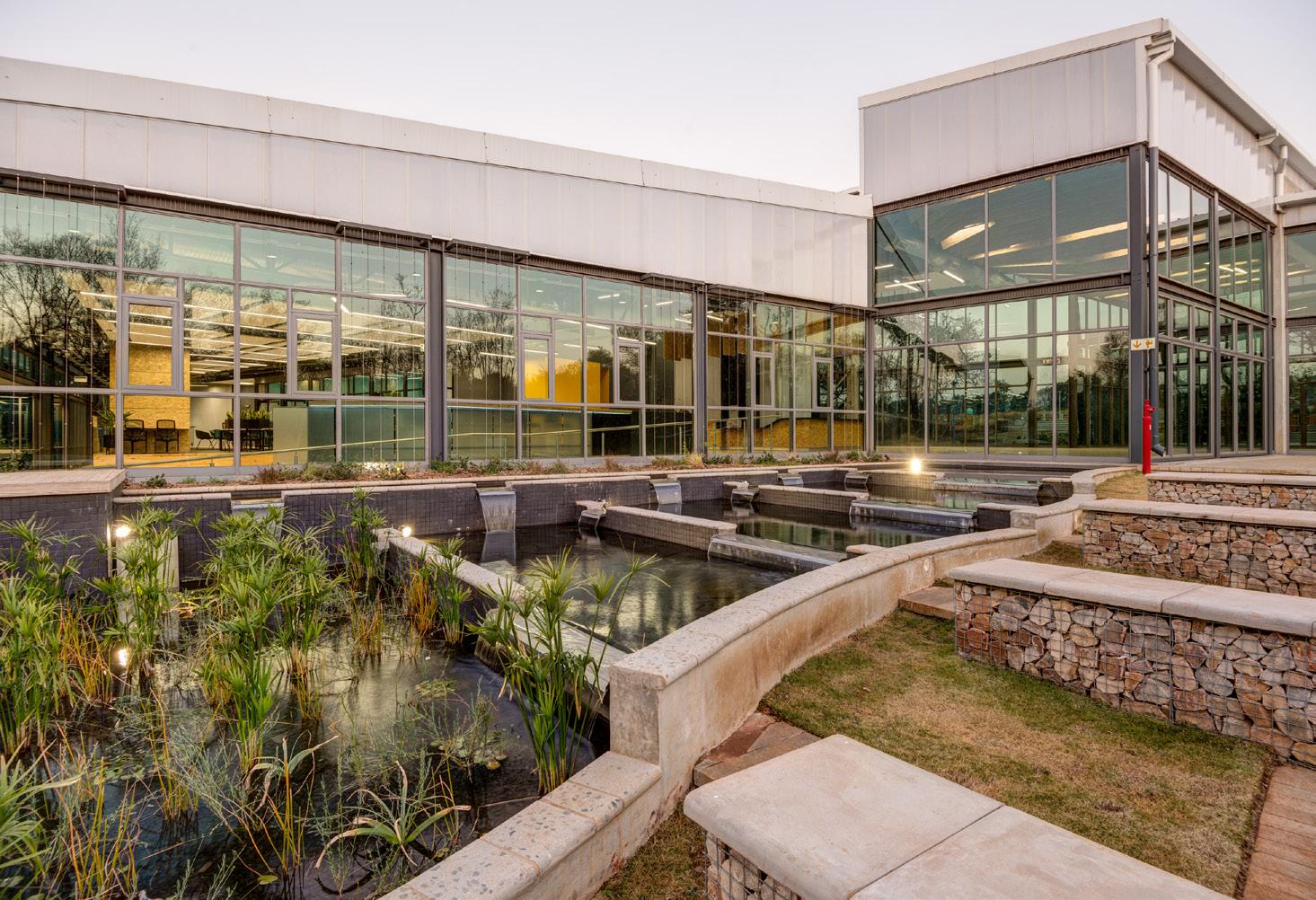
Mainstreaming Integrated Assessment Models by embedding behavioural change and actor heterogeneity, and increasing their outreach to citizens, communities and industrial actors (CHOICE): Integrated Assessment Models model climate stabilisation pathways and help policy-makers take better informed decisions. Mitigation options traditionally focused on supply-side measures and the aim of CHOICE is to close this gap by integrating assessment models into consumer, producer and stakeholder decision-making processes in the areas of food, agriculture and land use.
Biospheres as Effective Conservation Measures (BECOME): The project uses UNESCO Biosphere Reserves as model systems to understand how to manage synergies and trade-offs between conservation objectives and human development.
UP continues to invest in research through internal funding instruments and support mechanisms. Total funding increased from R170 million in 2022 to R202 million in 2023, with the largest increases allocated to postgraduate bursaries and postdoctoral fellowships. Postdoctoral fellows play an important role in various research activities and contribute significantly to the University’s standing as a global leading researchintensive university.
The new Graduate Hub, launched in 2023, focuses on dedicated support for postgraduate students and postdoctoral fellows, members of the university research community and active contributors to the University’s research activities and outputs. It is a conducive space to meet, share ideas and network. In this facility, postgraduate students and postdocs exchange ideas beyond the traditional boundaries of their disciplines. We envisage that the Hub will drive the creation of stimulating intellectual ideas and innovative and exciting results.

UP’s interest in global rankings is informed primarily by its overarching vision of becoming a global research player. Participating in these systems also encourages UP researchers to embrace important research practices such as collaborative research and co-authorship with international partners.
In 2023, UP dramatically improved its position in the 2023 Times Higher Education (THE) Impact Rankings, rising to position 69 out of 1 705 universities in 115 countries. UP was ranked in the 101–200 band in 2022. UP was also ranked in the top 100 for five of the SDGS that it submitted for the ranking. Of particular significance is our ranking at position 92 for SDG 17: “Partnerships for the goals” (for which all universities are ranked). This is testimony to our increased efforts in networking, partnering, and collaborations.
The University maintained its second position in South Africa. At the continental level, UP is now ranked second, where it was ranked third in 2022.
UP also made significant progress in the 2024 Quacquarelli Symonds (QS) World University Rankings and is now ranked 323rd worldwide, a notable improvement from its previous ranking in the 591–600 band.
The University is further ranked number one in South Africa in three of the nine indicators: employer reputation (155th in the world), international research networks (26th), and sustainability (158th).
UP is rated among the top 1% of universities globally in 14 of the 22 Essential Science Indicator (ESI) fields and was the only university in South Africa to feature in Economics and Business. Our academics produced the most documents within Economics and Business, Engineering, Microbiology and Plant and Animal Sciences within South Africa.
It is possible to use ESI statistics to identify the top 1% of scientists and published articles internationally, based on citations. As of January 2024, a total of 270 UP-published papers were among these top papers world-wide, spread over 20 of the 22 ESI subject fields. UP continues to dominate the subject category of Plant and Animal Sciences with 86 top papers.
Three of our researchers are ranked in the top 1% by ESI worldwide. They are: Professor Rangan Gupta in Economics and Business; Professor Mike Wingfield in Plant and Animal Sciences, and Professor Yves van de Peer in Cross-field (Ghent University, Belgium, with secondary affiliation UP). Researchers are selected for their exceptional influence and performance across several fields.
The University’s continued commitment to international cooperation in research is reflected in the growth of international postdoctoral fellows: from 100 in 2019 to 193 in 2023. Postdoctoral fellows are a strong indicator of future research excellence, with this often being the first step on the career-academic ladder. Aligned to this is a steady increase in total postdoctoral fellow numbers (325) and number of international academic staff (244).

It is a credit to our excellent academic staff that UP remains relevant in this ever-evolving world and captures attention on both the local and global stage. We list just a few of the international highlights in 2023.
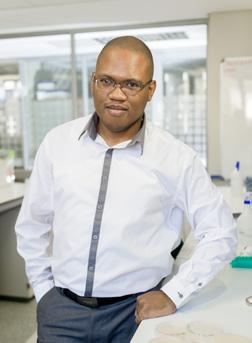
Professor Thulani Makhalanyane has become the first African academic to be appointed Editor-in-Chief of Reviews and Perspectives for the prestigious ISME Journal. Over the past 15 years, the journal has published groundbreaking research in microbial ecology, and its impact on the field has been immense. Prof Makhalanyane is a leading researcher in the field of microbial ecology, with a particular interest in microbial communities in extreme environments such as Antarctica and the Southern Ocean.
Professors Nigel Bennett and Anita Michel are in the Top 10 of Research.com’s 2023 list of the best scientists in South Africa in the field of animal and veterinary science. Prof Bennett, who holds the Austin Roberts Chair of African Mammalogy in the Faculty of Natural and Agricultural Sciences, was ranked second. Prof Michel in the Faculty of Veterinary Science was ranked sixth.


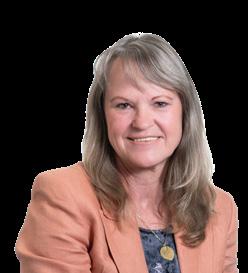
Professor Ann Skelton of UP’s Faculty of Law has been elected to chair the United Nations Committee on the Rights of the Child, where she will be active in holding states accountable for failures to protect the rights of children globally. She will head the 18-member committee of independent global experts, who share a common goal: to protect children around the world.
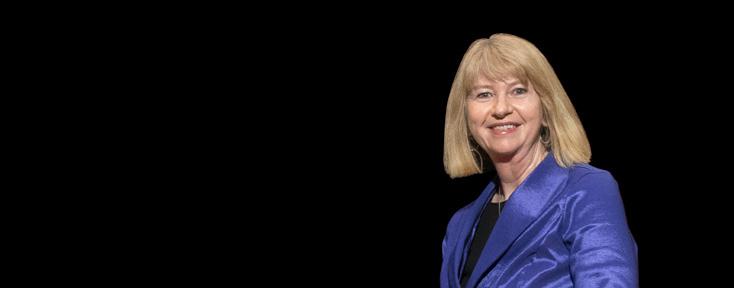
Professor Vukosi Marivate who holds the ABSA UP Chair of Data Science, has been accepted into the Forum of Young Global Leaders. The programme was established by the World Economic Forum to gather and train some of the world’s most outstanding young people to address the world’s most pressing issues. He joins a global network of over 1 500 members and alumni from 120 countries.

Professor Sunil Maharaj was appointed as an Honorary Doctor of Technology by the Faculty of Technology and Society at Malmö University in Sweden. He has led UP’s Research, Innovation and Postgraduate Portfolio with distinction and enthusiasm. In addition, Prof Maharaj earned an Exceptional Leadership Award for the role he played as the Chairperson of the Global Engineering Deans Council (2021–2023).



Professor Dire Tladi, an international law expert at the UP Faculty of Law, has been elected to the International Court of Justice (the World Court) – the first citizen of the Republic to serve in this capacity. He will start his nine-year term in February 2024. This outstanding recognition further attests to the standing of the Faculty of Law at UP globally.
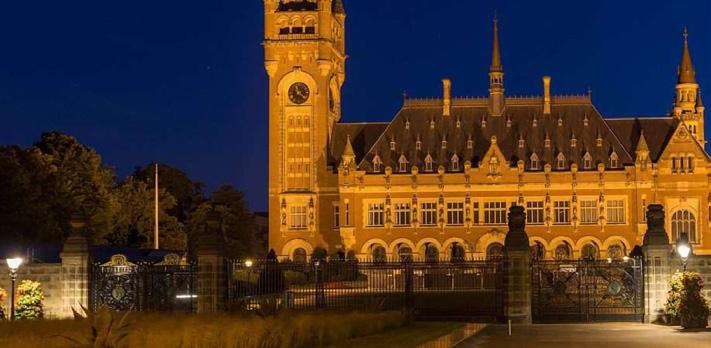
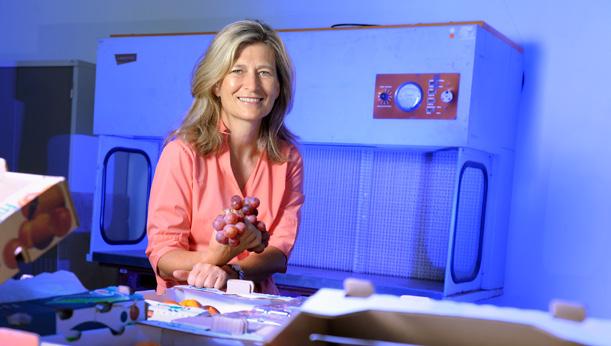
Professor Lise Korsten, a professor in plant pathology and Co-Director of the DSI-NRF Centre of Excellence in Food Security at UP, has been elected as the first female president of the African Academy of Science. The pan-African body was established in 1985 with the primary goal of promoting science, technology, and innovation on the African continent.

The Society of Nuclear Medicine and Molecular Imaging bestowed one of its highest honours on Professor Mike Sathekge Head of the Department of Nuclear Medicine at Steve Biko Academic Hospital. The 2023 Presidential Distinguished Award was presented to Prof Sathekge in recognition of his exceptional contributions to the field of nuclear medicine. By challenging conventional care norms and introducing novel radiopharmaceutical theragnostics, Prof Sathekge has transformed the way cancer is approached and treated.
Their success – and that of UP’s top academic achievers – ensures that the University of Pretoria produces a world of answers, answers that help create sustainable futures for South Africa, the continent and the world.
Rankings based on the 17 United Nations Sustainable Development Goals (SDGs), which are designed to address the most serious and critical global challenges.1
Top 1% of universities globally
Ranked in 14 of the 22 Essential Science Indicator (ESI) fields, and the only university in SA to feature in Economics and Business.


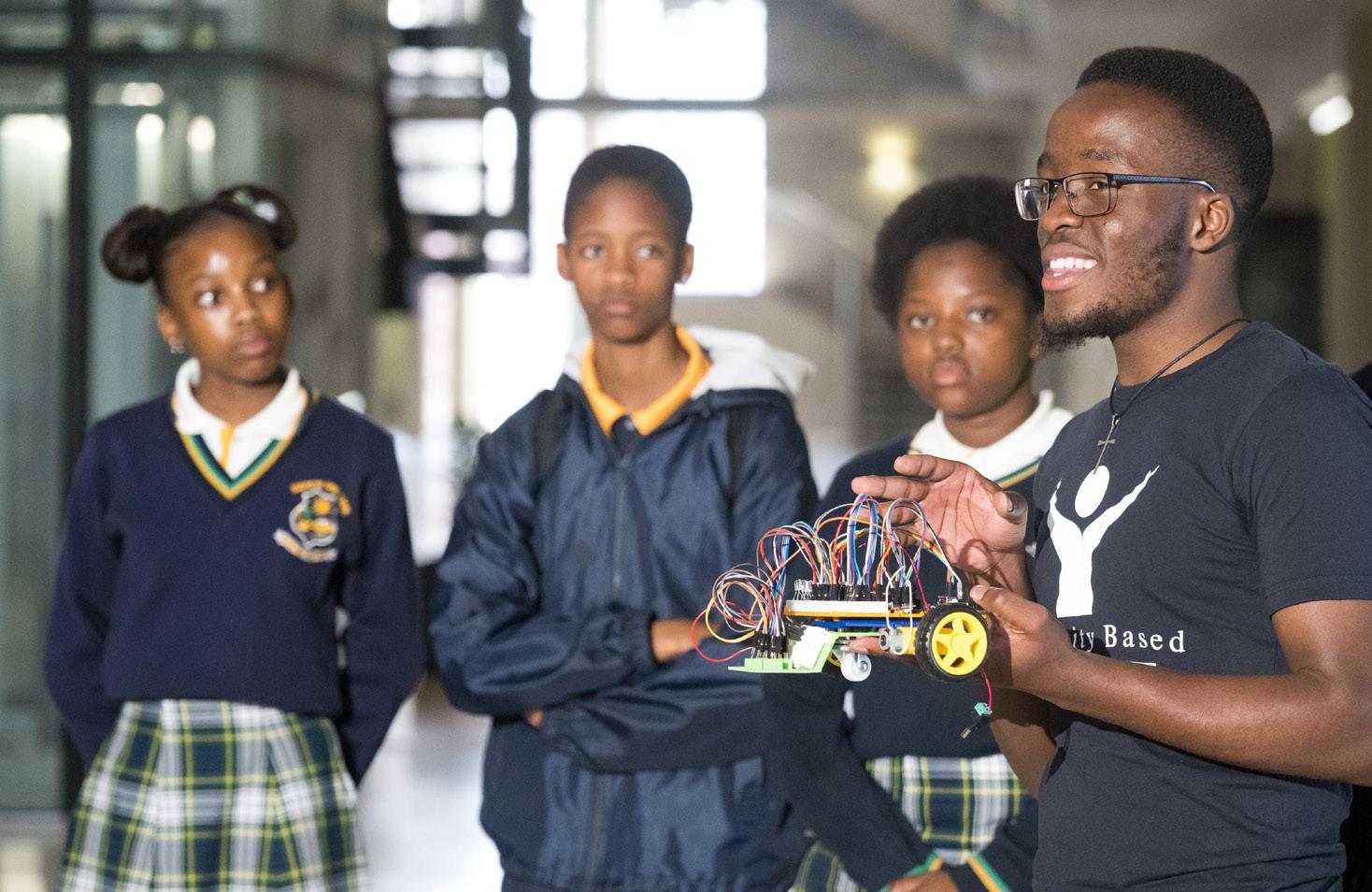
Our commitment to contribute to the development and well-being of people and societies permeates our engagement at several levels.
The range of our partnerships and collaborations spans all levels of society to ensure no one is left behind. In 2023, these activities ranged from preparing learners from underprivileged schools for the future world of work, to hosting the Future Earth Africa Hub Leadership Centre to coordinate sustainability efforts across Africa, to membership of Alliance for African Partnership, a consortium of ten leading African universities working to transform the continent through knowledge-based innovations.
We recognise that only by forming partnerships with multiple stakeholders and networks can we find innovative solutions to complex local and global challenges. Mutual collaboration enables us to make important advances in teaching, learning, research and innovation by building on each other’s areas of expertise.
In 2023, UP took yet another significant step towards making its presence felt as a global higher education institution, with its entrance into the International Association of Universities (IAU). The IAU is a United Nations-endorsed body that connects about 600 member institutions from more than 130 countries with the aim of enhancing the higher education community’s role and actions in advancing societies worldwide. It is worth noting that UP’s invited application was processed in record time because of its growing stature and standing among global academic institutions.
Our strategy for global engagement is producing rich results. A total of 128 active institutional level agreements and 122 active faculty level agreements were in place during 2023. In addition to these, the University formalised a total of 36 international agreements.
Furthermore, the University collaborates with over 3 000 institutions across the globe and has some 230 international institution-wide partnerships across 70 countries and six continents.
A few of the agreements, which promise impact at both grassroot level and at institutional level, are highlighted below.
University of Leeds: Besides leveraging each institution’s respective strengths to create clear platforms for collaborative research, the agreement will also expand international collaboration in digital education.
University of Nottingham: This MoU deepens the relationship we have to help build a PanAfrican Cancer Research Institute, which is emerging as a centre of excellence supported by our government, and extends the relationship to other disciplines – notably engineering and law.
Queen’s University at Kingston: Our two universities are already exploring projects in teaching and research at the Javett-UP Art Centre and the Agnes at Queens University, and this MoU promotes further cooperation in any disciplines that are common to both institutions.
University of Edinburgh: This alliance is set within the context of UP’s strategic plan, Destination 2026 and Beyond, and is central to one of its core strategies: strengthened research, international profile, and global engagement. The two universities agreed to conduct long-lasting collaborative research projects in the fields of neuroscience and nuclear science.
Guilford College: The agreement with this US arts institution was signed during the United StatesAfrica University Partnership Initiative Summit, which showcased the achievements and lessons learned from US-SA projects. The MoU will facilitate opportunities for student exchange and research collaboration.
International Science Council: UP’s Future Africa Institute and the International Science Council agreed to support African agendas that strengthen the presence of African science on the global stage. The agreement aims to reinforce an African voice for science and amplify this voice in international science, policy, and funding debates and action.
Collège de France: An MoU to collaborate on research programmes, doctoral supervision, and staff exchanges builds on the initial agreement signed by the two institutions in 2019. This is after ongoing collaboration between UP’s Faculty of Theology and Religion and the Chair in the Hebrew Bible and its Contexts at Collège de France.
Community engagement is a special form of stakeholder engagement, one that recognises that we are embedded in our host communities, and affirms the importance of communities and civil society.
We encourage our students to contribute to their communities through knowledge co-creation and civic responsibility. In 2023, all faculties were extensively involved in compulsory Curricular Community Engagement (CCE), with 24 357 students across 233 modules participating. The engagement covered diverse sites, from the Eskom Expo for Young Scientists to hospitals and welfare organisations, and featured a wide array of engagement locations including early childhood development centres, animal shelters, schools, clinics, farms and nature reserves.
As an example, the Faculty of Engineering, Built Environment and Information Technology (EBIT) launched a new computer laboratory at the Edward Phatudi Commemorative School in Atteridgeville. This forms part of the faculty’s Adopt-A-School project aimed at giving back to the community. The faculty will also assist the school with various other resources, such as developing a go-green project, offering a mentorship programme in basic computer training to learners, and assisting with preparations for the Eskom Expo for Young Scientists.

In 2023, the University awarded its annual Award for Community Engagement to Prof A Bhayat from the School of Dentistry, for providing dental services and oral health education to marginalised communities.
Students from EBIT have also been teaching and mentoring learners from underprivileged townships and rural schools in science, technology, engineering, and mathematics (STEM) careers.
In 2023, a new flagship programme – Tuks Robot School – was launched where robotics, computer programming, and sensor technology are presented to prepare and inspire these learners for the future world of work. The programme was inspired by UP’s ten-year-old annual Robot Car Race, which saw many asking EBIT to initiate a similar experience for school learners.
A collaboration between the University of Pretoria PreUniversity Academy (UP-PUA) and Hong Kong Polytechnic University (HKPU), saw learners from schools in Mamelodi being taught robotics and coding in 2022. This was continued in 2023 with an initiative to teach them how to code drones. This latest intervention included 44 learners from the UP-PUA, who attended virtual classes presented by 40 students from HKPU and assisted by five engineering students from UP.
We furthermore encourage our students to become global citizens in South Africa through UP’s Global Online Teaching and Learning initiative. This consists of 36 online teaching and learning projects that cut across disciplines, from architecture and occupational therapy to marketing management and political science. The projects include 49 UP lecturers and 91 international lecturers from 30 countries.
The University had a highly productive year during which it welcomed luminaries in the political and academic world.
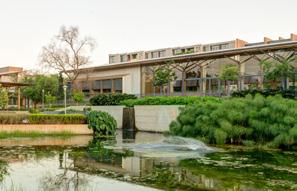
University Partnership Initiative Summit
UP hosted its first University Partnership Initiative Summit in partnership with the USA’s State Department at the Future Africa Campus. The theme was Equitable and sustainable partnerships for impact.
Africa Week
UP Africa Week 2023, a biennial scientific leadership summit, brought together thought leaders from Africa, the US, the UK, Europe, Australia, and New Zealand to discuss the most pressing challenges and opportunities currently affecting science systems on the continent.
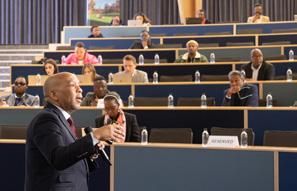
UNDP Just Energy Transition Platform public lecture
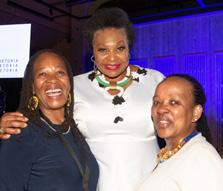
The United Nations Development Programme, in partnership with the Presidential Climate Commission and UP, hosted a public lecture titled Unleashing technology’s role towards a sustainable and just energy transition at the Future Africa Campus. South Africa’s Minister of Electricity, Dr Kgosientsho Ramokgopa, delivered the keynote address.
International law conference on Hague convention
The Faculty of Law hosted a high-level regional conference that focused on the Hague Conference on Private International Law and the relevance of its work for Southern Africa.
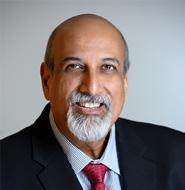
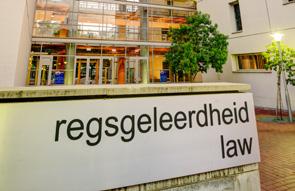
ARUA Distinguished Annual Public Lecture
UP hosted the first ARUA Distinguished Annual Public Lecture, which was presented by Professor Salim S Abdool Karim, and coincided with the meeting of ARUA DVCs (Research). The African Research Universities Alliance (ARUA) is a network comprising 16 research-intensive universities across Africa.
UP’s over 320 000 alumni continue to be global ambassadors of the University, and their achievements in an array of disciplines demonstrates their impact in the real world.
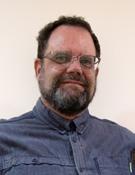
Professor Bruce Gummow received a Lifetime Achievement Award from the Southern African Society of Veterinary Epidemiology and Preventive Medicine for his contribution to the veterinary profession and disease control. After completing his Honours at UP in 1988, Prof Gummow acquired his Master’s of Veterinary Medicine, Pharmacology, in 1993.
Ndamulelo Madima produced a 100% pass rate in English First Additional Language in his 2022
Grade 12 class. His success resulted in him being recognised as the best educator in the province’s Warmbaths circuit in the subject. He graduated in 2021 with a Bachelor of Education (Hons) degree.
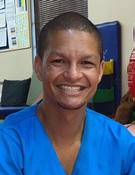
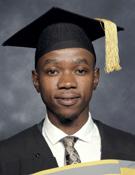
Joseph Shiraaz, a clinical supervisor for paediatrics in UP’s Department of Physiotherapy made waves in the martial arts world, securing both gold and bronze medals at the prestigious Asia Africa Cup organised by the Japan Karate Shoto Federation. As the Head Karate instructor for Sakura Kai Disabled Karate, based at Alma School, he has played a pivotal role in empowering individuals with disabilities through martial arts. He graduated as a physiotherapist in 2006.
Shameela Soobramoney has been appointed Chief Executive Officer (CEO) of the National Business Initiative (NBI). She graduated from UP with a Postgraduate Diploma in Business Administration in 2005, and obtained her Master of Business Administration in 2007.


2023 Mail & Guardian 200 Young South Africans list: Every year the Mail & Guardian celebrates people under the age of 35 who make a positive, tangible impact on society. Being nominated is a significant honour, as many previously recognised individuals have gone on to achieve phenomenal success. Of the 200 inspiring young people recognised in 2023, 16% (32) come from UP.
Number of collaborating institutions for coauthored publications

UP students earn credits toward their degrees while working in the community
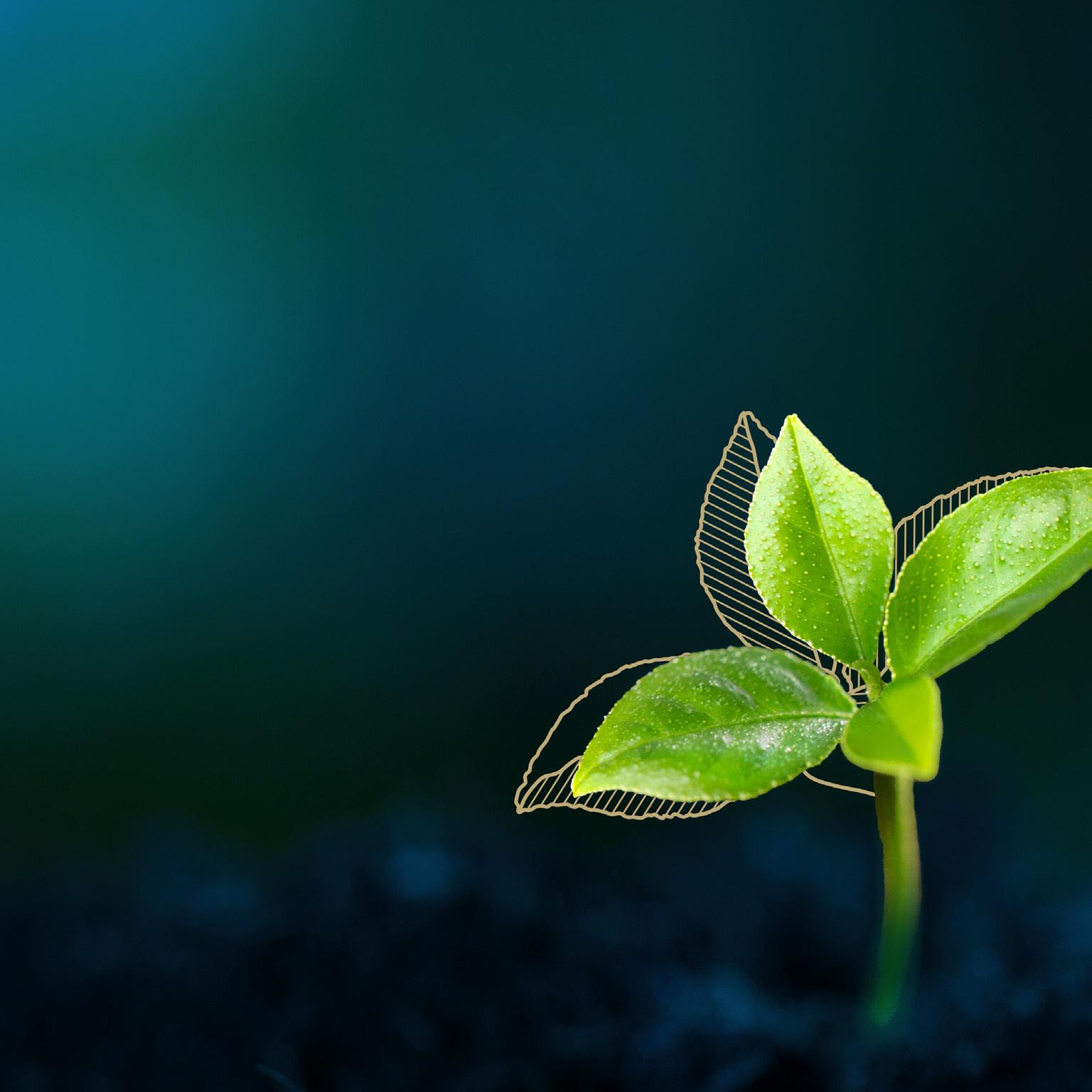
Our contribution to sustainable development spans two broad areas: operational sustainability and financial sustainability. Without financial sustainability UP cannot contribute adequately via our core functions of teaching, learning, research, innovation and engagement. While this has become increasingly challenging in the face of economic pressures, we continue to pursue innovative approaches, creating more value from fewer resources.
Sustainability considerations also include demonstrating stewardship in the use of natural resources in our operations, care of our spatial footprint, and environmental impacts related to interfaces between the University and neighbours within our host community.
We consider our performance in the 2024 Quacquarelli Symonds Sustainability Rankings as one of the measures of our success. These global rankings provide a framework to show how universities are responding to the world’s environmental, social and governance challenges. UP’s performance improved from 171–180 in the 2023 rankings to 156 in the 2024 rankings (released at the end of December 2023). The University’s best performance was against the knowledge exchange metric, where UP was ranked 23rd in the world. The knowledge exchange indicator measures universities on their commitment to share knowledge in collaboration with less-economically-supported institutions, and a university’s inclination to partner with other institutions and organisations.
Through our core functions, our sustainability contributions extend far beyond our immediate footprint. In fulfilling our purpose as a higher education institution, our staff are agents of change and transformation; successful students create a strong and capable society, and our research outputs influence policies and practices.
A key development during 2023 was finalising the integrated academic framework with subsidiary frameworks for teaching and learning, research, innovation and postgraduate education, which both incorporate curricular community engagement.
The principles of sustainable development are embedded within the frameworks, as they work to address the sustainability challenges we face as a country and continent, and our aspirations for sustainable futures.
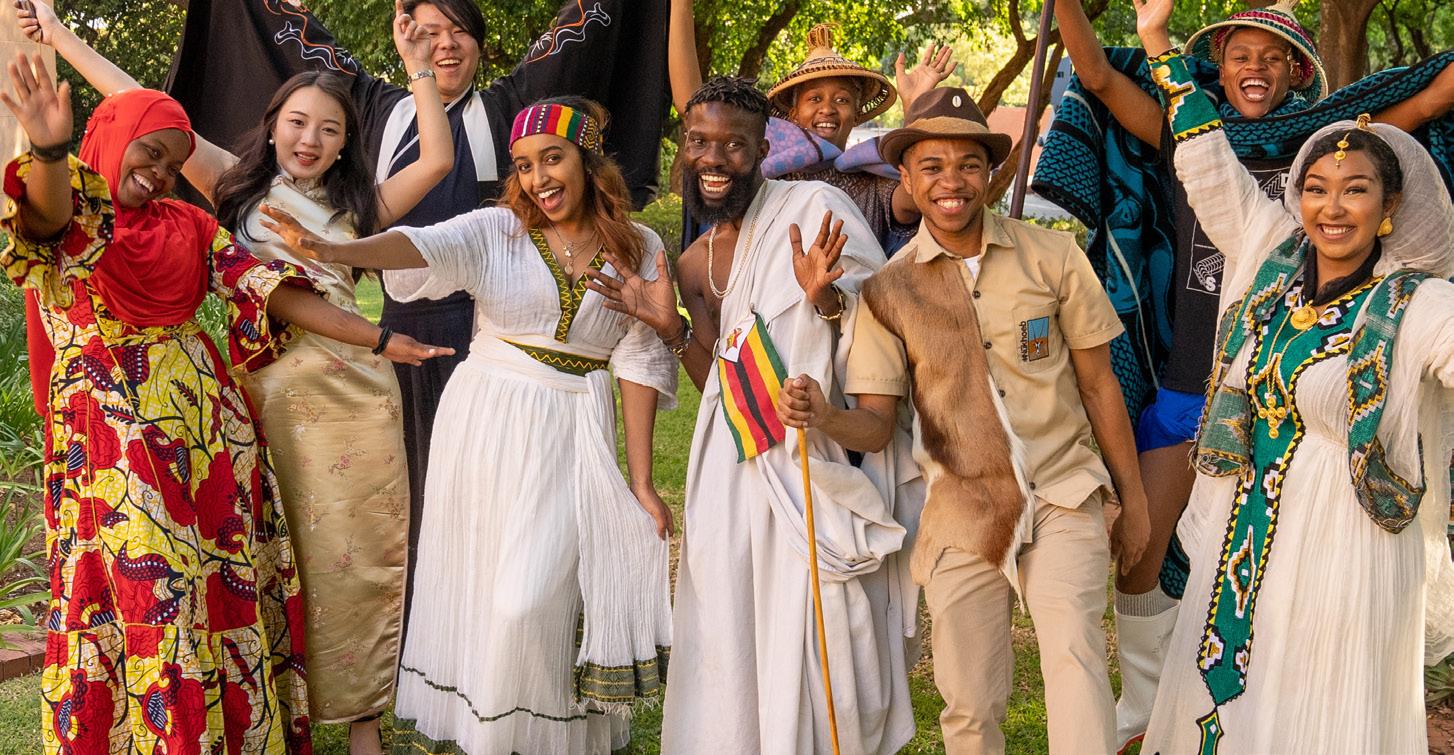
The dimensions include:
• understanding the societal context and related challenges;
• broadening student access and enabling graduate success, which contributes to societal human capital development;
• producing African-global citizens who are enquiry-led, work- and future-ready, entrepreneurs, and lifelong learners; and
• creating new knowledge with innovative product development for transformative societal impact.
As part of our integrated approach, the principles of inclusivity, innovation, fairness and collaboration are firmly embedded in the strategy.
Collaboration and partnerships amplify the impact we seek. In addition to collaborating with individual universities, UP is active in a wide range of regional and international networks. These include the Worldwide Universities Network, the African Research Universities Alliance, and the Association of Commonwealth Universities, among others. The University is also a founding member of the recently formed Knowledge Equity Network.
At an institutional level, intentional collaboration continues to strengthen. A steering committee and task team was formalised to advance multi-, inter- and transdisciplinarity in teaching, learning, research and community engagement across the University.
The UP Transformation Strategy was concluded in 2023 with Council approval during the year. Additionally, efforts to address findings of the Institutional Culture Survey continued through the year at faculty and departmental levels. Both initiatives will accelerate our current progress.
The UP student demographic profile has steadily changed over the past years. Where 59.2% of our contact students were black in 2019, this percentage increased to 66.3% in 2023. Of this, the majority (61.2%) are women. The University exceeded its 2023 target for employment equity and close on 70% of its staff are black.
Skills development and leadership potential further produced good results, as reflected in initiatives such as:
• New Generation of Academics Programme (nGAP): All 37 nGAP lecturers appointed are from designated groups, with females making up 71.1% of the group.
• Programme for Academic Leadership (PAL): During 2023, 17 participants were enrolled, of which seven were female.
• Management Development Programme (MDP): During 2023, 19 participants successfully completed the programme, thereby enhancing managerial skills within the University.
• Future Professors Programme (FPP): Two UP candidates participated in the 2023 DHET programme to develop academic excellence and leadership.
Students and staff with disabilities
Through the Disability Unit (DU), we continued to support students with disabilities. In 2023, 598 registered students received support, an increase from 559 students in 2022. The students represented a diverse range of disabilities, faculties, races and genders.
Global engagement was a key highlight in 2023. Simon Sikhosana had the honour of representing UP in the Erasmus Programme at the University of Valladolid in Spain. Additionally, the DU played a pivotal role in enabling a Psychology master’s student to participate in the Erasmus Exchange Programme. This student will carry the UP flag in Lithuania for six months starting in January 2024.
Financial sustainability remains a top risk to our university, with the entire higher education sector facing economic challenges. Key issues include government subsidies not keeping pace with operating costs; a high staff cost base; the capping of tuition fee increases by the Minister of Higher Education, Science and Innovation, and high levels of student debt.
Minister Blade Nzimande reported in 2023 that student debt owed to tertiary institutions amounted to approximately R16.5 billion. In addition, the Department of Higher Education and Training announced that all prospective students who had been approved for NSFAS funding, could register for the 2023 academic year without having to pay a registration fee. This placed further strain on the financial stability of the tertiary sector.
The UP Financial Sustainability Plan guides the University through these issues. Key focus areas of the plan are to maximise operational efficiencies, contain costs and enhance all income streams. It is also used as a navigational marker to expand the number of academic staff, thereby improving the academic staff-to-student ratio.
The continual reductions in state subsidies and earmarked grants pose a serious threat to the University’s ability to provide quality education and produce world-class research. In 2023, financial aid to the University decreased by 9% to R2 097.31 million. This resulted in the total for student bursaries and loans declining slightly from 2022 figures, which stood at R2 297.80 million.
In the face of constrained government subsidies and tuition fee escalation, diversifying revenue and funding sources is critical to our survival and the impact we desire to make. Furthermore, our ability to secure and grow alternative income sources reflects our success in positioning ourselves as a leading institution with a global outlook.
A significant portion of third-stream revenue is from external research funding. Declines in government-
related and international grants were offset by increased funding from national institutes and centres, as well as the private sector. External research funding increased by R33.5 million to R713 341 993 compared to R679 744 387 received in the previous year.
Enterprises University of Pretoria (Pty) Ltd is a wholly owned subsidiary of UP and is responsible for developing, implementing and managing the University’s commercial activities. Besides extending the University’s legacy of knowledge transfer, it contributes to the growth and success of working professionals and different organisations.
A wide range of training programmes empowers professionals to thrive in their roles, contribute to their organisations’ success, and navigate the challenges of a rapidly evolving societal landscape. Research and consulting services cover diverse public and private sector clients in different global jurisdictions, industries and sectors.
In 2023, revenue increased by 17.8% to R265.1 million (2022: R235.5 million).
UP has a vast geographic footprint of 1 165 ha, with 737 buildings covering more than one million square metres, and being utilised by a University community of over 60 000 people. In managing the University’s sizeable infrastructure and land, and providing various support services, decision-making is significantly influenced by the need to optimally manage water, energy and waste.
At UP, energy efficiency and security have been strategic priorities for over a decade. Integrated efforts have ranged from building design, improving efficiency of energy-intensive and other energy-utilising equipment, and establishing a culture of energy conservation.
The University has been installing photovoltaic (PV) panels since 2018 to improve energy security and increase the
use of renewable energy. Notwithstanding these efforts, energy insecurity through municipal power supply interruptions or load shedding by the national power utility remained a significant threat to business continuity in 2023. With current energy demands exceeding the capacity of photovoltaic systems, we remain dependent on fossil fuel-burning generators. The increased use of diesel comes at a significant cost in addition to increased greenhouse gas (GHG) emissions with an expanded carbon footprint. In 2023, some R79 million was spent on diesel for use by standby generators, an increase of R35 million on 2022 expenditure.
UP is a major generator of general waste which comprises recyclable waste, food waste, and garden waste. During 2023, a total of 165 555 kg of waste was recycled. This is a 52% increase in recycling compared to 2022, and a saving of almost 4.5 million tonnes of carbon emissions.
The upgrading of the compost and mulch production facility on the Hillcrest Campus has substantially decreased the need for, and costs of, transporting garden refuse to landfill sites. Around 2 500m³ of compost and mulch was produced and used on all the University properties in 2023, a 5.7% increase on 2022 amounts.
The UP Water Management Plan continues to guide the range of water conservation initiatives to increase awareness, optimise its use, and protect the resource across the University. These include high-efficiency plumbing systems, preventative and scheduled maintenance coupled with early leak detection and intervention to prevent water losses, and water-efficient irrigation systems using recovered water for the University’s large-scale landscaping.

Despite the efforts above, which also include water-wise gardening and rainwater harvesting, the University increased its water consumption in 2023 to 1 116 771 kilolitres.
We see the United Nation’s Sustainable Development Goals (SDGs) as centred on the human condition, addressing both our humanity and our meaningful existence. This is represented in a framework which covers the following:
• our basic humanity and being human;
• realising our full potential;
• improving our human existence;
• being mindful of our planetary boundaries;
• embracing our coexistence with all forms of life; and
• amplifying our impacts through partnership and collaboration.
On being human Our
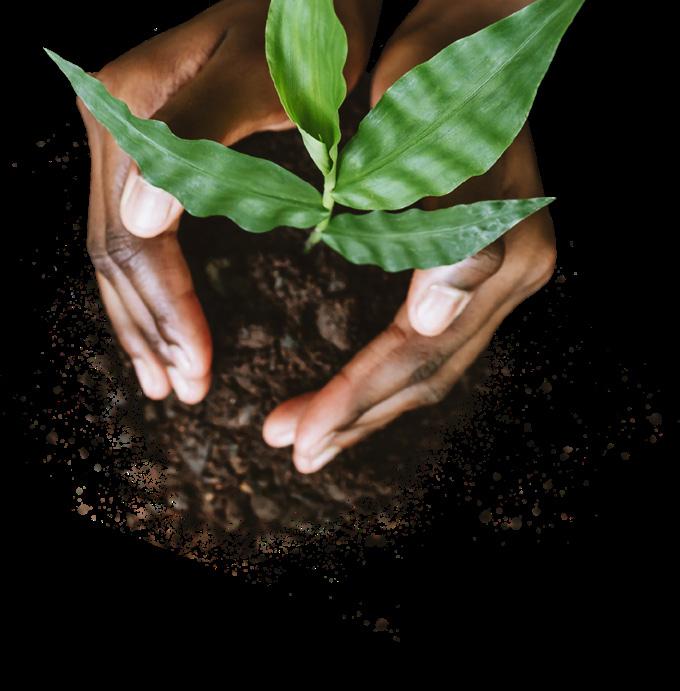
We demonstrate our broad contribution to the SDGs through our output of research units in these SDG clusters. In 2023, our growing research in the cluster “On being human” reflected the extent to which we are addressing the pressing issues on our continent: poverty (SDG 1), hunger (SDG 2), gender equality (SDG 5) and inequality (SDG 10). There were 598 research outputs, an increase of 23.2% over 2022 (486). The cluster “Our human potential” remains the most prolific and reflected the highest number of research outputs (747) on good health and well-being (SDG3) and quality education (SDG 4).
In conclusion, we continue to take our leadership role in sustainable development seriously. This is seen through how we conduct ourselves as an institutional citizen, and live our philosophy of achieving transformative societal impact through high-quality education and co-creation of knowledge. Our sustainability efforts continue to be translated into impacts that can be seen and felt at many different levels of complexity. This is essential to just and inclusive societal development.

A constrained macro-economic outlook has had a direct impact on the government fiscus and on South African households. National Treasury has reduced the budgets of government departments, resulting in budget cuts to the university sector, which is still navigating complex issues such as the student funding model, increased accommodation needs and a general decline in state funding. The sector has also seen a steady shift in funding sources towards NSFAS and away from subsidies allocated to universities via block grants. During 2023, the total allocation to NSFAS amounted to 46% of the state budget for the university sector, while block grants amounted to 48%.
The University therefore continues to focus on financial sustainability, which is listed as the number one risk in the University’s Strategic Risk Register.
The University’s total revenue increased by 5.2% during 2023, driven primarily by growth in student numbers. UP also benefitted from the financial corrective measures effected by the DHET in the teaching input sub-block grant due to deviations in enrolment targets by other Universities. Third-stream income declined during 2023, resulting in an increased proportion of revenue for the remaining categories.
Other income includes income from donations and gifts and income from interest and dividends. Income from donations and gifts improved marginally during 2023, with an increase of 7.4%. Income from interest and dividends also improved despite volatile financial markets.
Total expenses increased by 6.6% during 2023 due to inflation and additional costs for diesel. Operational expenses (excluding depreciation) as a percentage of total expenses have remained at similar levels compared to 2022.
Personnel costs as a percentage of revenue increased in 2023 due to a higher increase in staff costs compared to the increase in revenue. This measure is a critical focus area for the Financial Sustainability Plan and various measures are being implemented to reduce this percentage.
Gross student debt at the end of the financial year amounted to R835,7 million (2022: R673,6m). This represents 28.8% of the total tuition fees billed for 2023, a 3.2% increase from 2022. Student debt has increased considerably due to insufficient funding to support missing middle students, the decline in the economy, the demand for fee-free higher education, and the capping of accommodation fees by NSFAS.
High levels of inflation experienced in 2023 and financial strain on South African households have resulted in financial and debt instability, which contributed to the higher levels of outstanding student debt. The provision for bad debts on student receivables is 54.4% (2022: 58.6%) of gross student receivables. The provision has decreased in 2023, due to outstanding NSFAS debt at year-end which was not provided for, as it was recovered subsequent to year-end.
The University has reviewed and updated its policy on providing for outstanding student fees and made adjustments to provide for the increase in outstanding student debt taking the above factors into account. The demand for student financial aid continues to outstrip the available resources.
Initiatives to curtail a disproportionate growth in outstanding student debt include:
• Requiring students to pay a first payment at registration;
• Regular monitoring and increased contacting of students with outstanding debt;
• Handing over student accounts for debt collection in cases of long outstanding amounts;
• Charging a levy on default accounts to fund related legal tracing fees;
• Requiring a 50% deposit for all first-time registering international students for tuition and accommodation fees; and
• Limiting registrations to students with outstanding balances until settlement or conclusion of formal payment arrangements.
The University’s investment funds serve three purposes, namely:
• To meet part of the short-term requirements of the University (a maximum term of 24 months) – this emphasises the need for capital protection over short periods and a high degree of liquidity;
• To meet the long-term liabilities (5 years and more) of the University – the main requirement here is a good investment return relative to inflation over the long term and capital growth; and
• To meet the requirements of a special class of the long-term liabilities, namely the post-retirement medical aid benefits.
To this end, three investment portfolios have been established:
• Money Market Portfolio;
• Long-Term Capital Portfolio; and
• Continuation Medical Aid Portfolio.
Despite the volatile local financial markets, a significant proportion in foreign investments allowed for reasonable stability by limiting the risk of price fluctuations through leveraging foreign exchange gains.
The University has recorded satisfactory results for the financial year ended 31 December 2023. However, the disparity in the growth of income and expenses year-onyear remains a concern. The University recorded a loss of R135,8 million for subsidised activities before transfers, and had to rely on once-off reserves to fund the deficit. This is the result of expenses increasing at a higher rate compared to income streams. The University will continue to aim for a breakeven result in subsidised activities by implementing the controls and measures in the Financial Sustainability Plan. These controls and measures are essential to ensure that the University remains financially sustainable and to alleviate the funding constraints from first- and second-stream income.
for the year ended 31 December 2023

UP is building not just a nextgeneration university. It is also ensuring that the next-generation workforce leaves well equipped to become active contributors to the economy.
Kuseni Dlamini Chair of UP Council
